When Pakistan Parted
1971
جب پاکستان ٹوٹا تھا
Muhammad Ahmad Zafar
10th December 2021
www.aagahi.com
All India Muslim League

Maulvi Fazlul Haq with the Founder
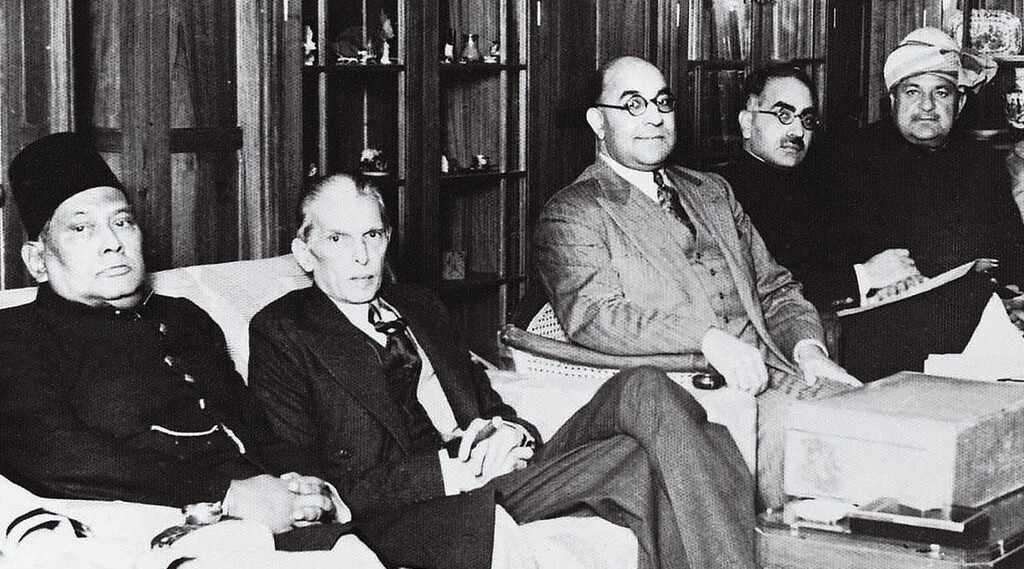
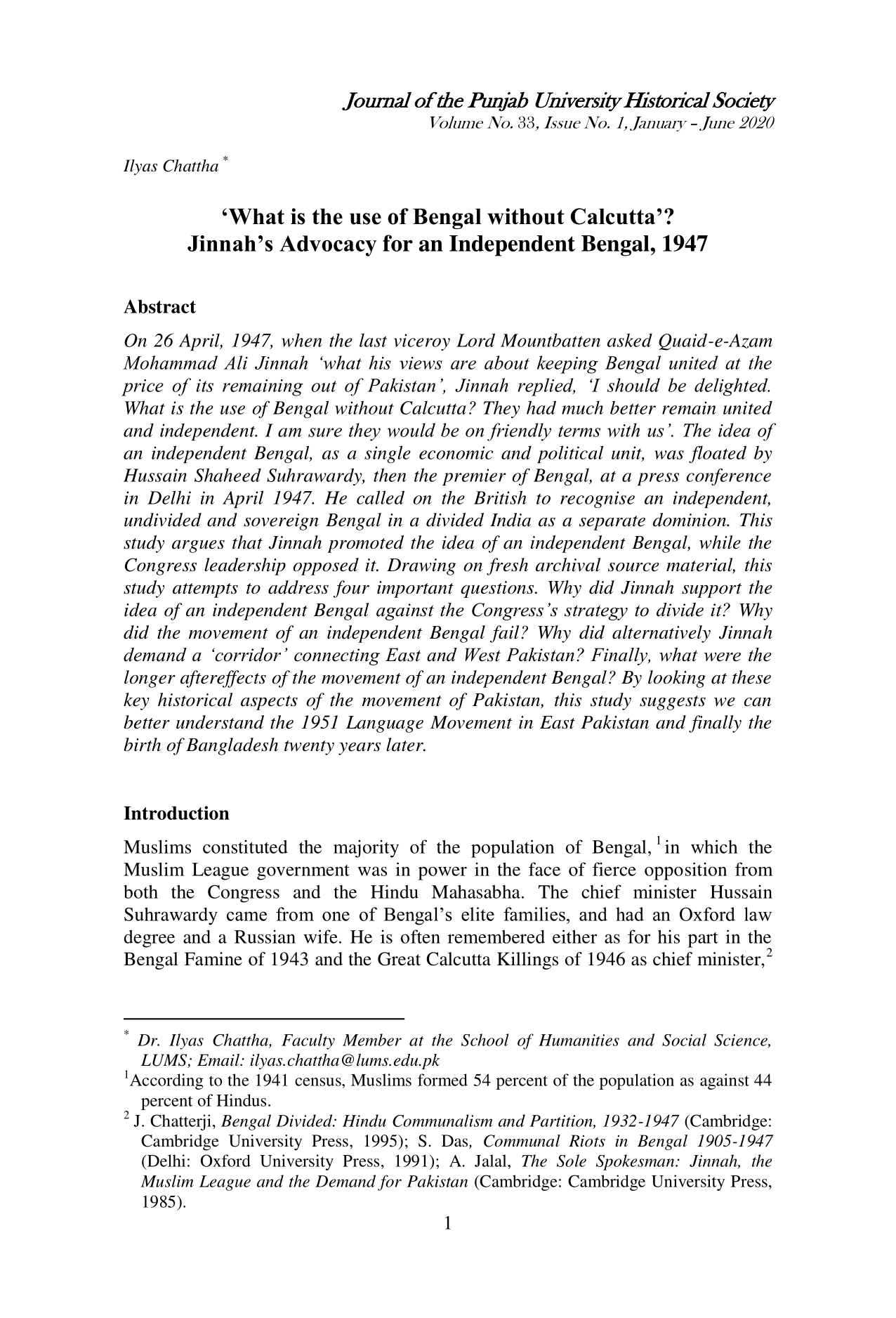
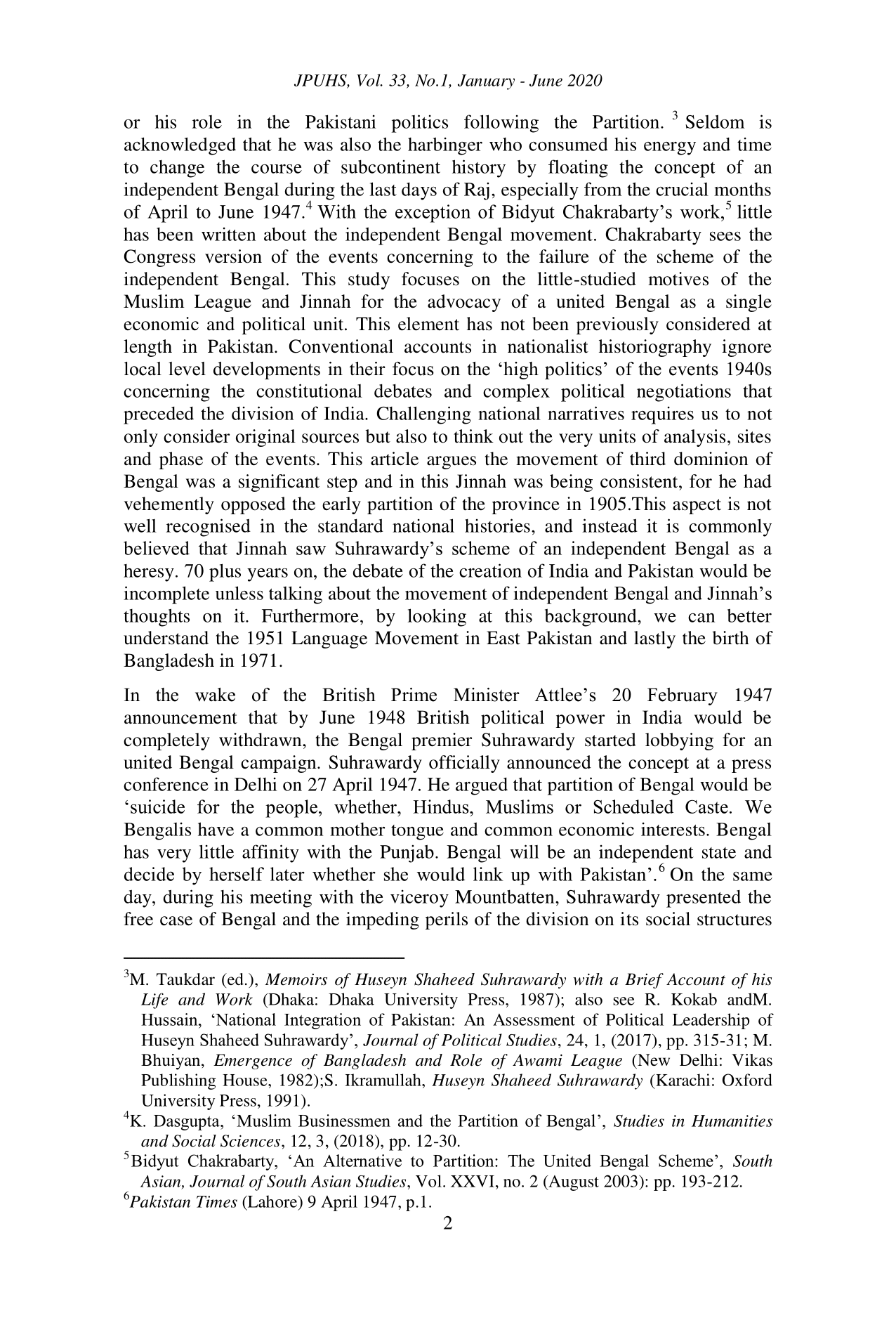
The Planned Delay
Cyril Radcliffe, chairman of the Border Commission, submitted his award on August 12 but Mountbatten deliberately delayed it.
On 17th August, the award was finally published after days of partition.
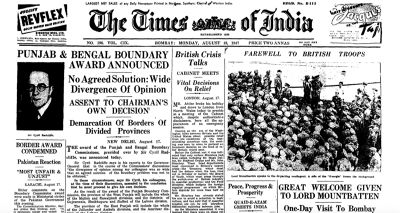
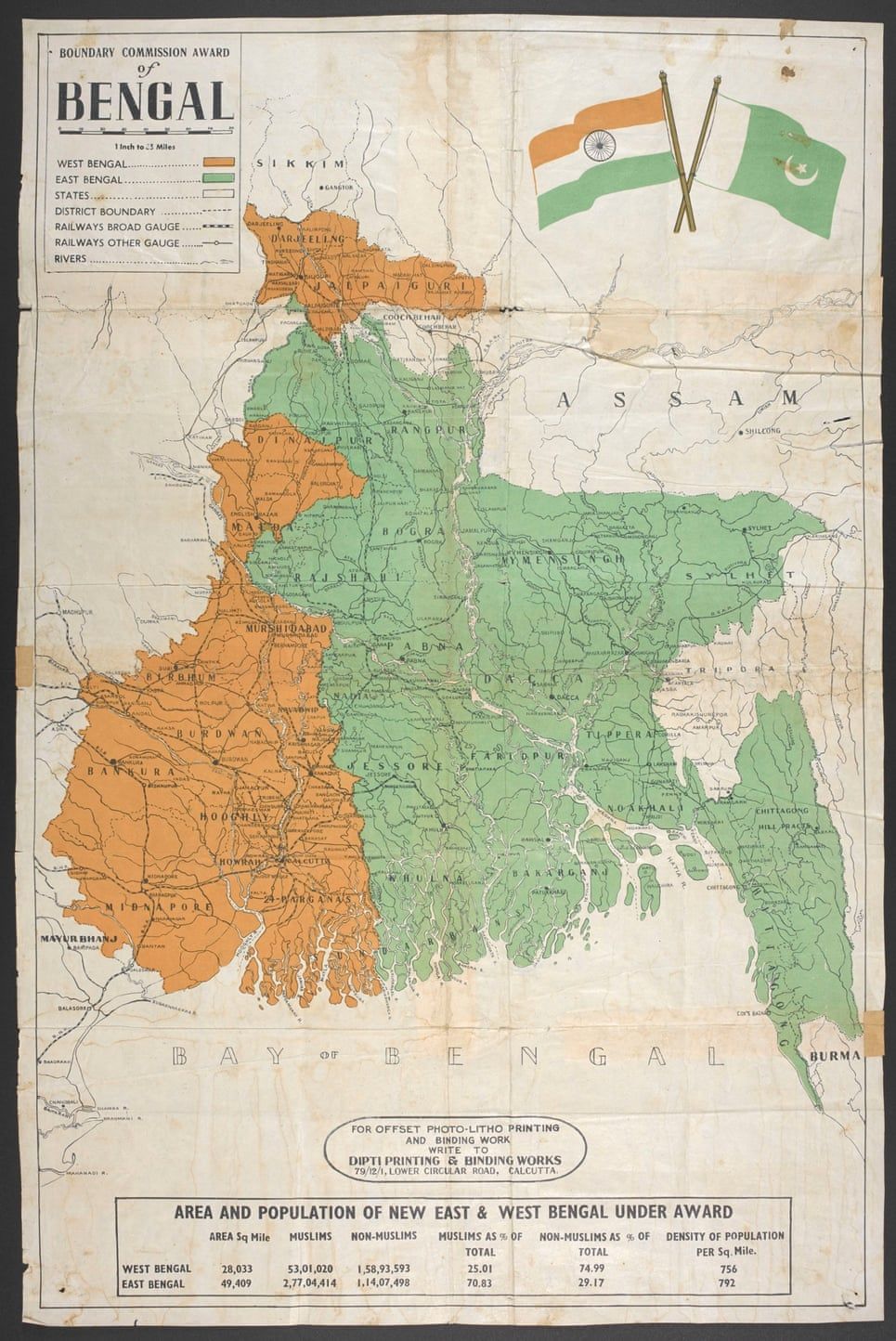
“From independence until 1971, Pakistan (both de facto and in law) consisted of two regions—West Pakistan, in the Indus River basin in the northwestern portion of the Indian subcontinent, and East Pakistan, located more than 1,000 miles (1,600 km) to the east in the vast delta of the Ganges-Brahmaputra river system.”
[Encyclopaedia Britannica, Pakistan]
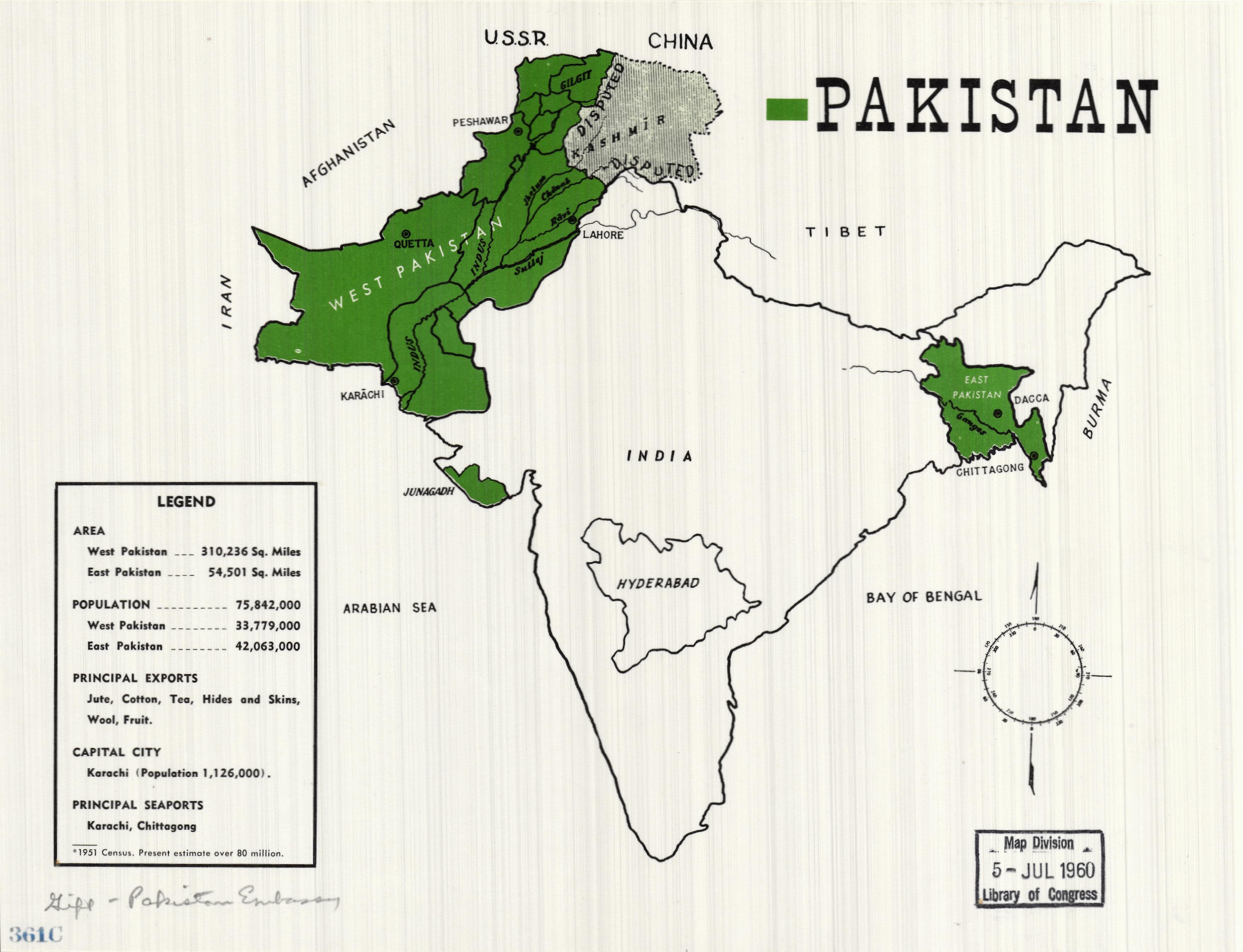
Dispute on State Language (1)
“... in February 1948, the Assembly moved an amendment in the Assembly rules to allow Bengali to be used in the House along with Urdu. Liaquat Ali Khan, the first Prime Minister of Pakistan, opposed the resolution on the ground that ‘Pakistan had been created because of a hundred million Muslims in the sub-continent and the language of a hundred million Muslims is Urdu ...’”
[Beyond the Vision by Dr Aftab Ahmad, 112]
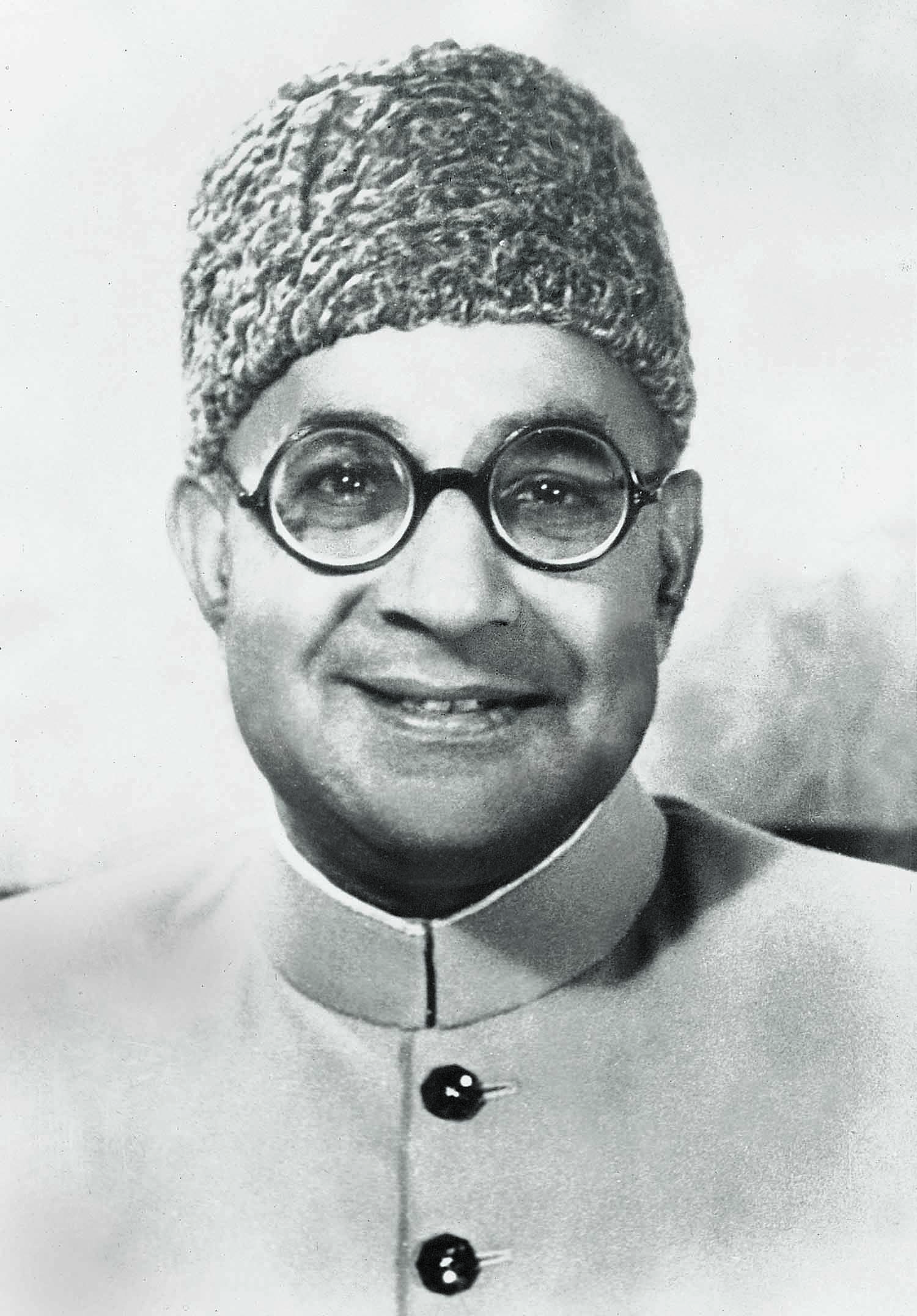
Dispute on State Language (2)
“A Committee of Action of the students of Dhaka University was set up for the purpose and Sheikh Mujibur Rahman was in the forefront of the agitation. On March 11, a student demonstration was baton-charged and a large number of students were arrested.”
“The provincial Chief Minister Khwaja Nazimuddin entered into negotiations ...”
[Beyond the Vision by Dr Aftab Ahmad, 112]
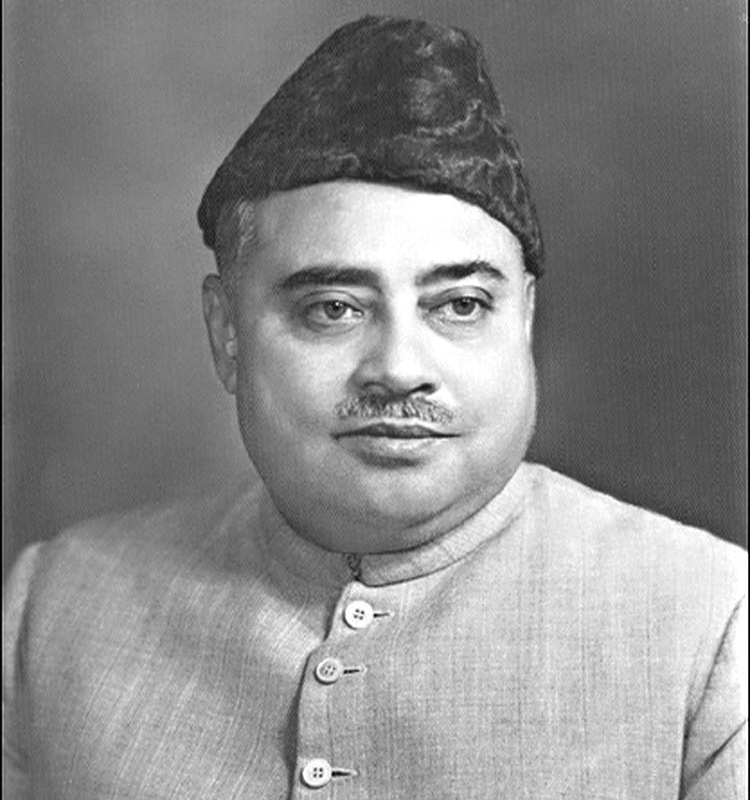
Later became the Governor-General in 1948
Quaid-e-Azam, Muhammad Ali Jinnah’s Visit to Dhaka in March 1948
“As-Salam-o-Alaikum! I am grateful to the people of this province ... Our enemies had hoped to kill Pakistan at its inception ... Let me at once assure you that my Government attaches the greatest importance ... that Eastern Pakistan attains its full stature with maximum of speed ... It is always easy to criticise ... What we want is not to talk about Bengali, Punjabi, Sindi, Baluchi, Pathan and so on ... No, we are Muslims ... for God’s sake give up this provincialism. Provincialism has been one of the curses; and so is sectionalism - Shia, Sunni, etc ...”
[Jinnah Speeches as Governor General, 95-105]
“... But ultimately it is for you, the people of his province, to decide what shall be the language of your province. But let me make it very clear to you that the State language of Pakistan is going to be Urdu and no other language. Anyone who tries to mislead you is really the enemy of Pakistan. Without one State language, no Nations can remain tied up solidly together and function ... do not fall into the trap of those who are the enemies of Pakistan ... I ask you one question. Do you believe in Pakistan? (Cries of yes, yes) ... With these words I wish you God speed.”
[Jinnah Speeches as Governor General, 95-105]
Heads of State from Bengal (1)
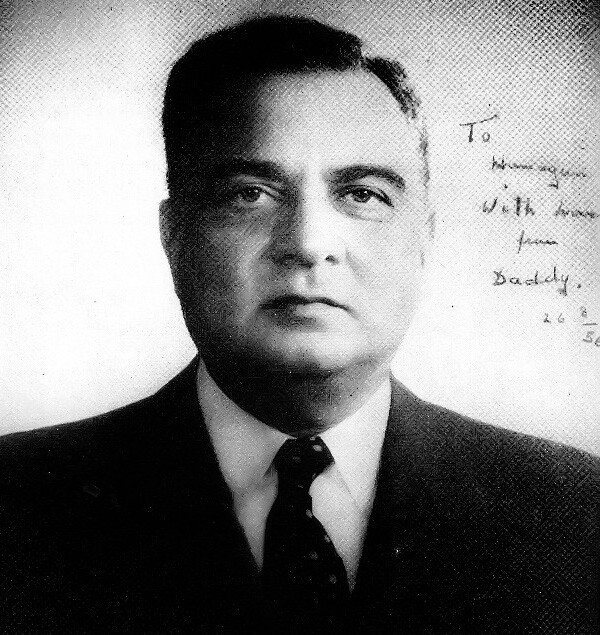
President & Governor-General
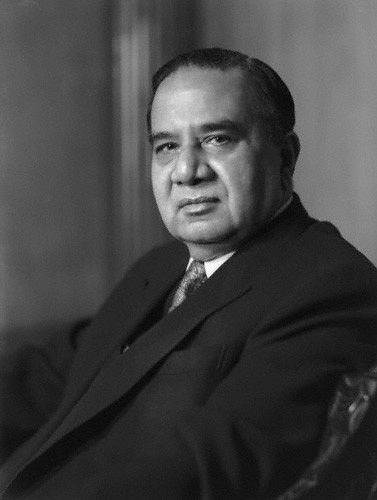
Prime Minister
Heads of State from Bengal (2)
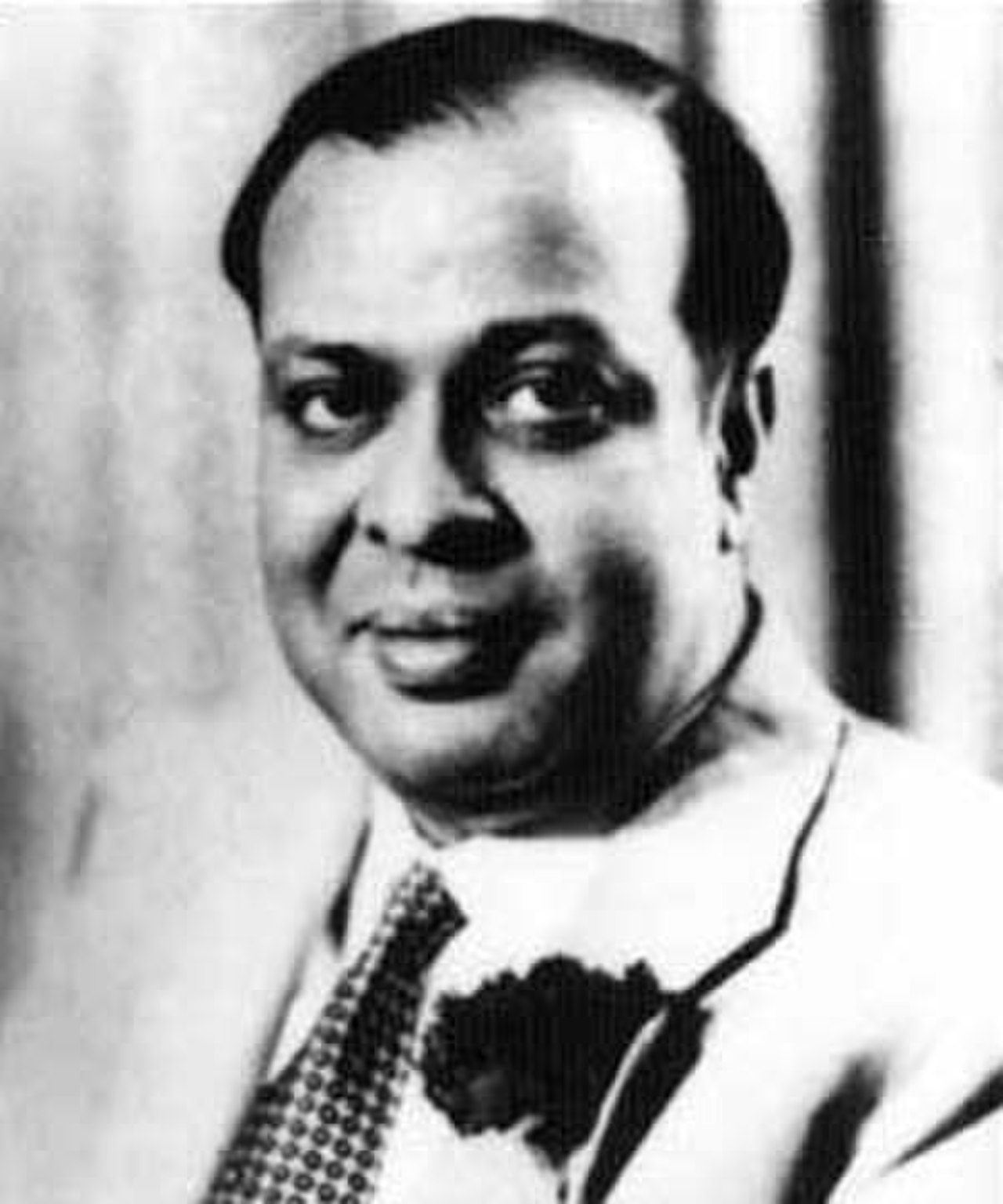
Prime Minister
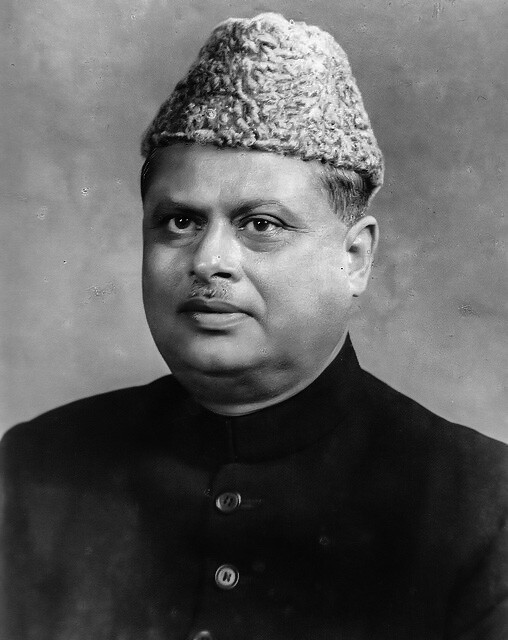
Prime Minister
Gen. Sam Manekshaw
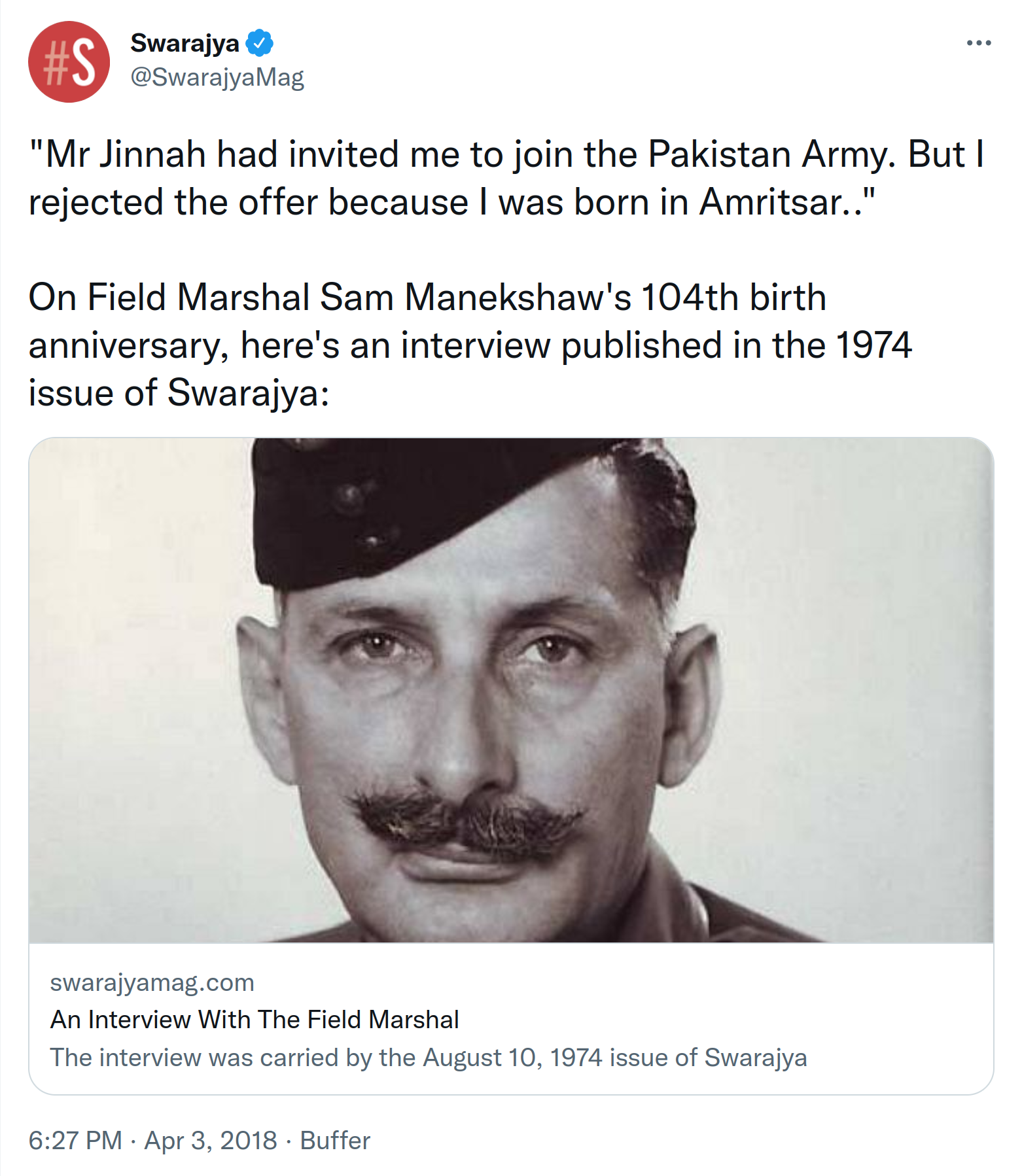
“East Pakistan Awami Muslim League was formed on 23rd June, 1949.”
[Official Website of Awami League]
“In 1955 ... Awami Muslim League dropped the ‘Muslim’ to mark the birth of a secular democratic political party.”
[Operation X, 7]
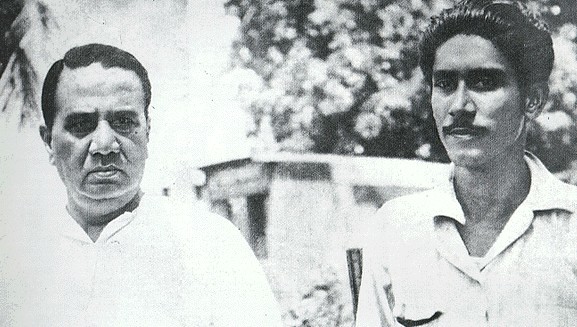
Rise of Awami League
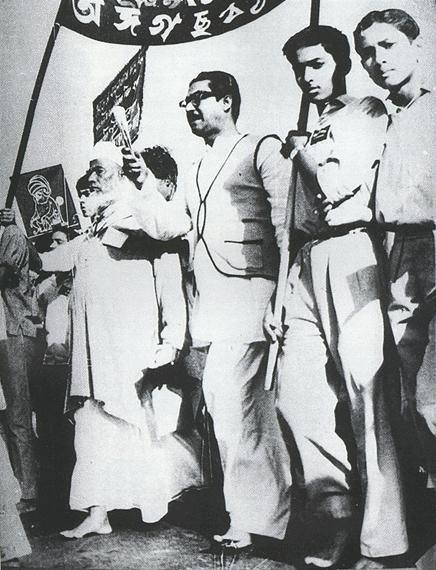
“... in January 1952, when Nazimuddin reiterated Quaid-e-Azam’s views ... a province wide strike, on 21 February 1952 and defy the government ban ...”
[Beyond the Vision by Dr Aftab Ahmad, 113]
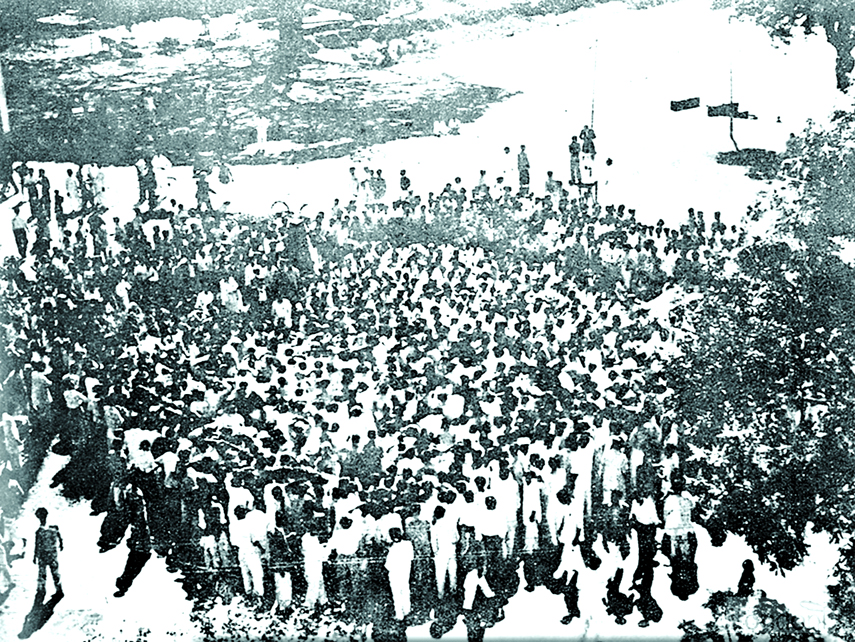
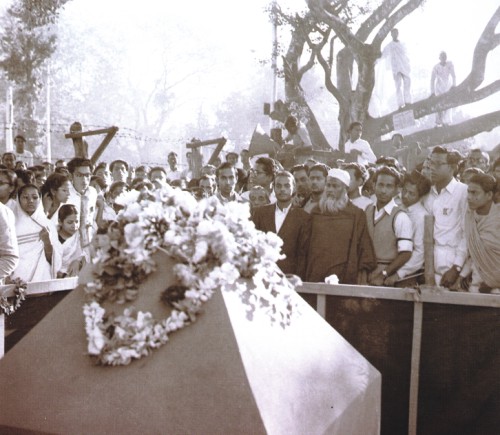
“Three persons were killed as a result ... Later, a monument called the Shaheed Minar was built ...”
[Beyond the Vision by Dr Aftab Ahmad, 114]
“... Fazlul Haq and Suhrawardy set up a United Front and campaigned on a 21-point programme in 1954 ... ‘East Bengal will get complete autonomy according to the Lahore Resolution.’”
[Beyond the Vision by Dr Aftab Ahmad, 104]
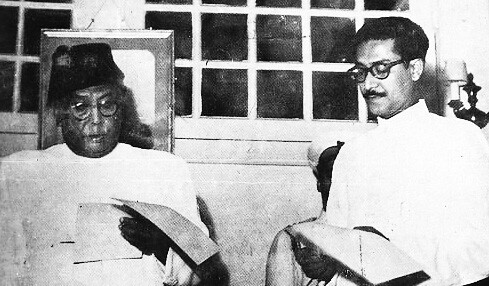
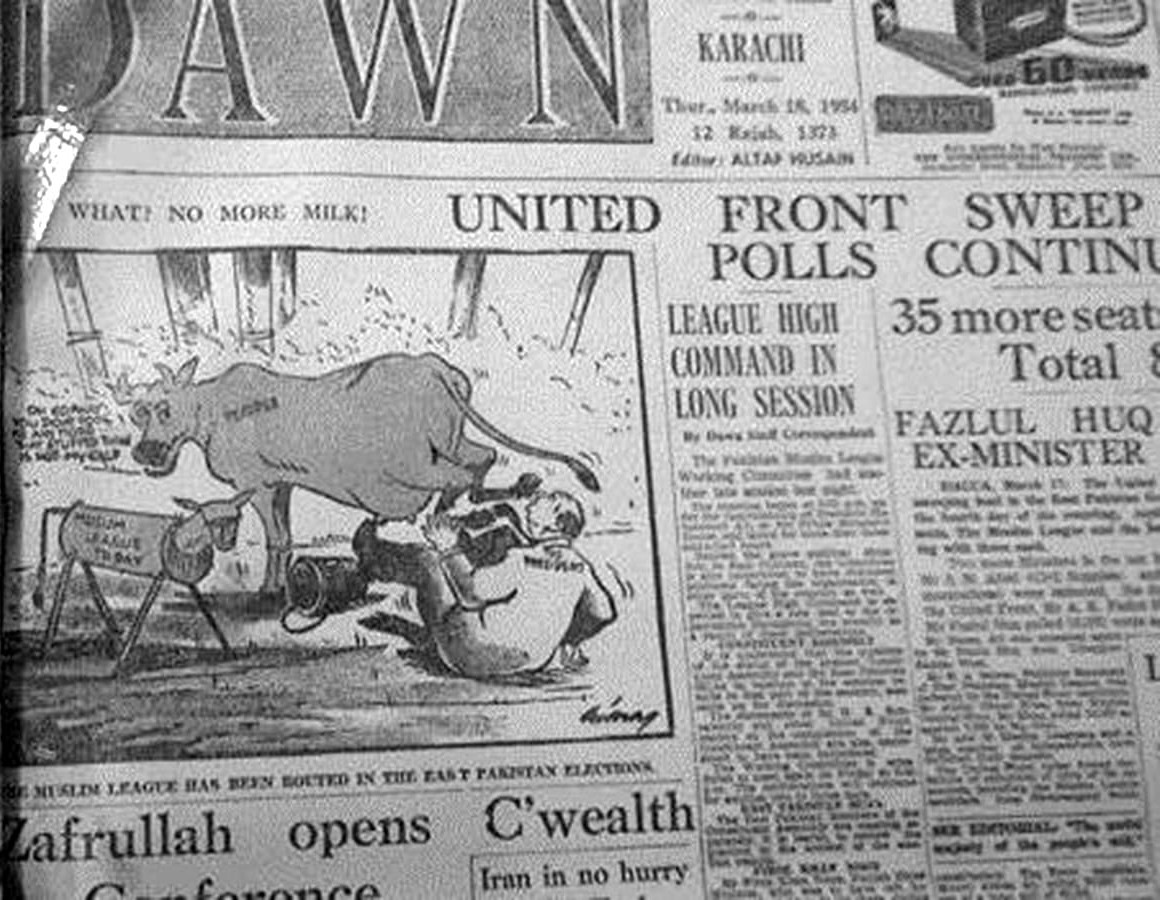
“... in 1954 ... election by United Front ... on a 21-point programme ... the adoption of Bengali as a national language.”
[Beyond the Vision by Dr Aftab Ahmad, 114]
Sheikh Mujib’s Famous Six Points
“No wonder that after the war when the dust settled Sheikh Mujibur Rahman came up with his six point formula in an opposition leaders' meeting at Lahore in January 1966.”
[Beyond the Vision by Dr Aftab Ahmad, 72-73]
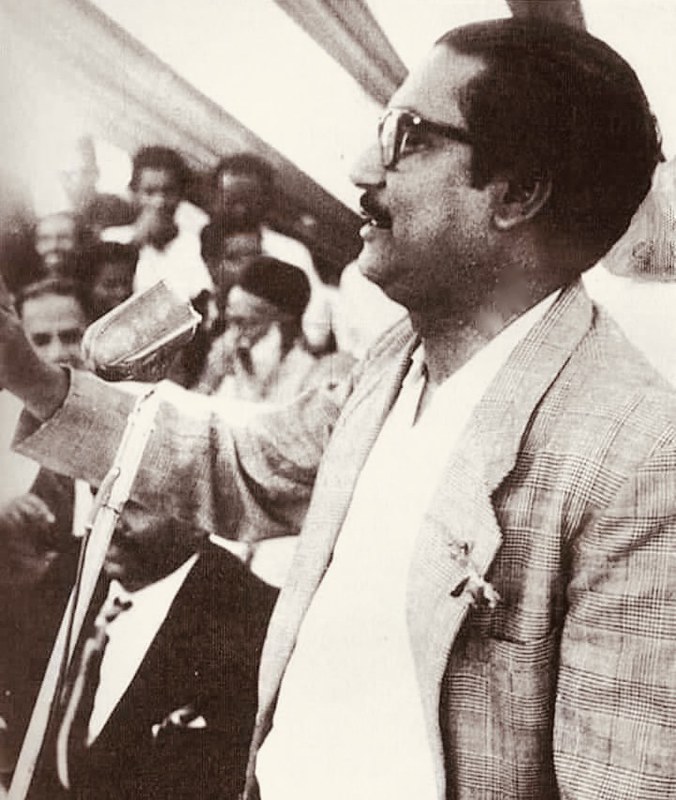
The Agartala Conspiracy
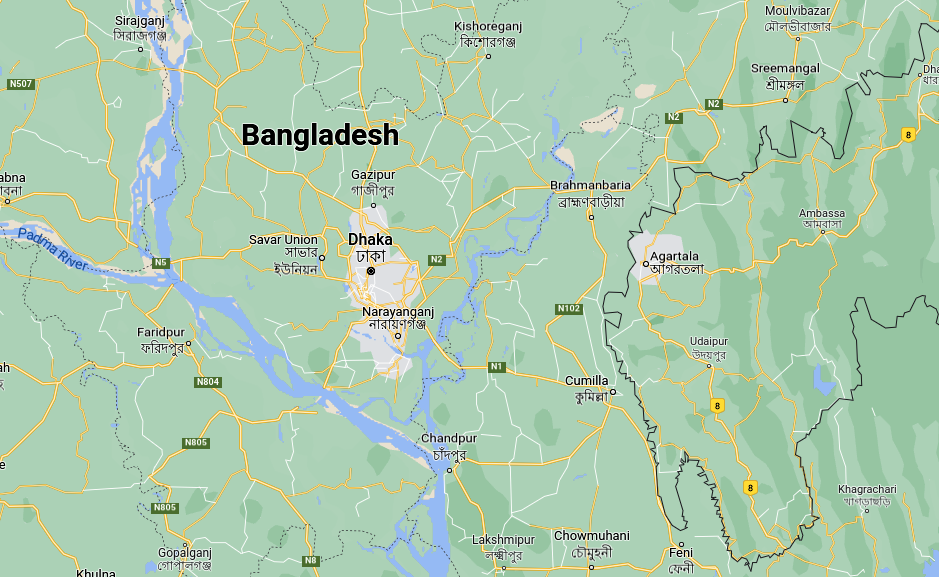
“... thirty-five individuals, including Mujibur Rahman, were accused of ‘plotting ... by an armed revolt with weapons, ammunitions and funds provided by India.’”
[A Stranger in my Own Country, 27]
“The Agartala Conspiracy was discovered by the army intelligence in December 1967. In January 1968 a number of persons were arrested on a charge of conspiring to overthrow the government and to bring about the secession of East Pakistan ... visited Agartala (capital of the Indian state of Tripura) to discuss plans with some officers of the Indian Army.”
“The case has been handled by the army intelligence under the direct control of General Yahya.”
[Beyond the Vision by Dr Aftab Ahmad, 31]
“The trial was never completed as the charges were dropped when Ayub resigned the presidency and Martial Law was imposed by Yahya Khan.”
[A Stranger in my Own Country, 27]
“The Agartala Conspiracy was not a fabricated story created to implicate Sheikh Mujib. This has been confirmed by Mr Ashok Raina in his book Inside RAW: The Story of India's Secret Service (1981), in which he has highlighted the meetings which took place between pro-Mujib factions and the Indian Intelligence Bureau Operation (IIBO).”
[The Betrayal of East Pakistan, 35]
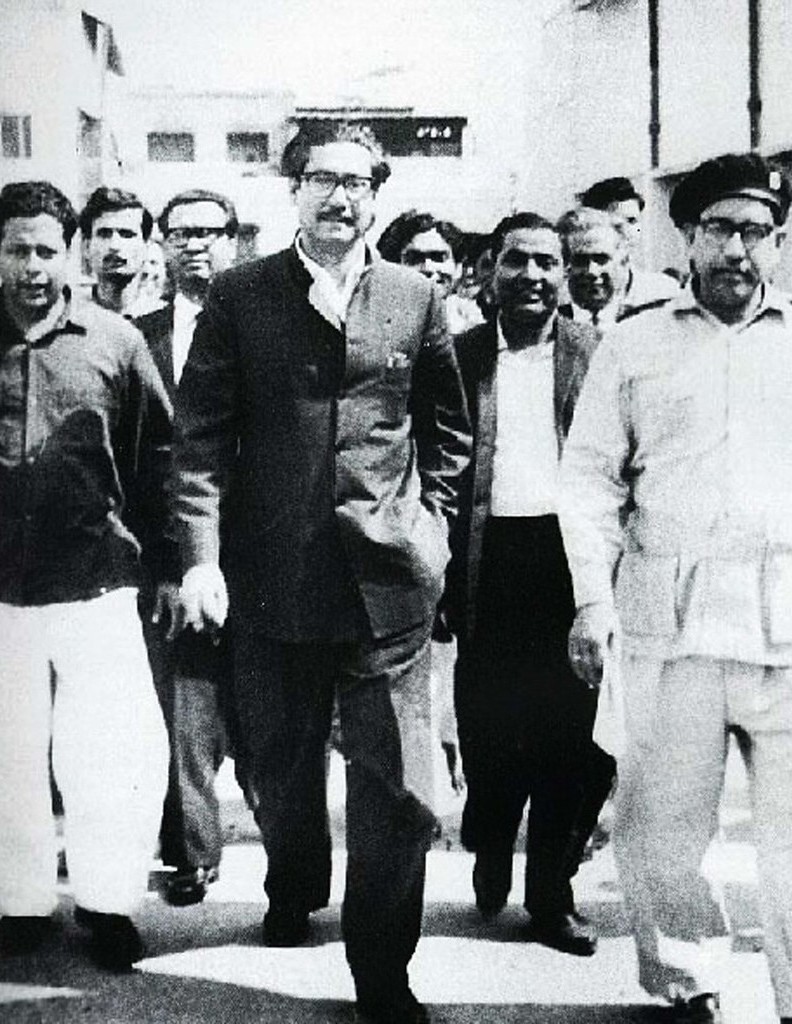
Emergence of RAW
“In 1968, India’s newly created Research & Analysis Wing (RAW), set up just three years before under the enigmatic Imperial Police officer R.N. Kao, had identified East Pakistan as a thorn in India’s flesh.”
“The Directorate General of Security (DGS) a special paramilitary outfit set up with CIA assistance after the 1962 war with China, specialized in covert warfare.”
“After 1968, the DGS was subsumed by RAW.”
[Operation X, 19-20]
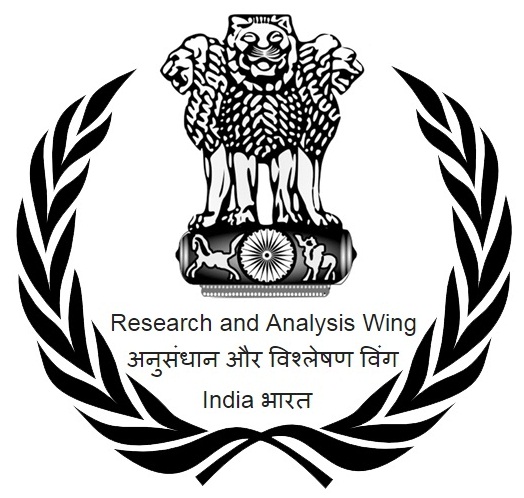
“RAW played a significant role in the formation of Bangladesh ...”
[Think Tank: Council on Foreign Relations]
cfr.org/backgrounder/raw-indias-external-intelligence-agency
Round Table Conference - 1969

“... emergency was lifted in February 1969 at the time of the Round Table Conference.”
“... was scheduled to meet on 26 February. The conference met and adjourned until 10 March ... RTC had demanded the change of the governors of both the wings which the President had accepted.”
[Beyond the Vision by Dr Aftab Ahmad, 21 & 54]
“On the evening of 25 March 1969 Ayub ... announced the failure of the RTC ... ‘There is now no institution except the armed forces which can save the country ...’”
[Beyond the Vision by Dr Aftab Ahmad, 56]
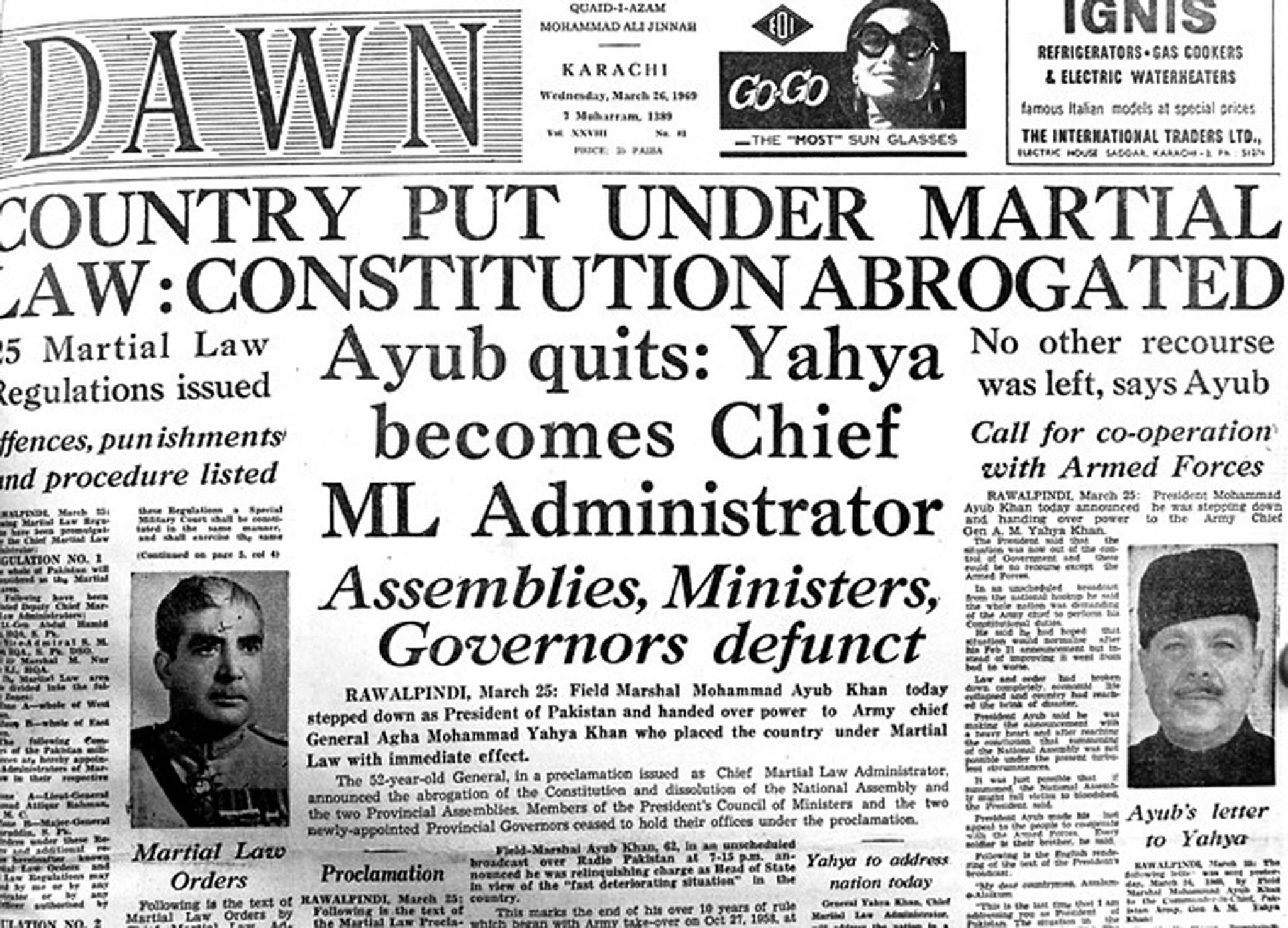
First Public Mention of ‘Bangladesh’
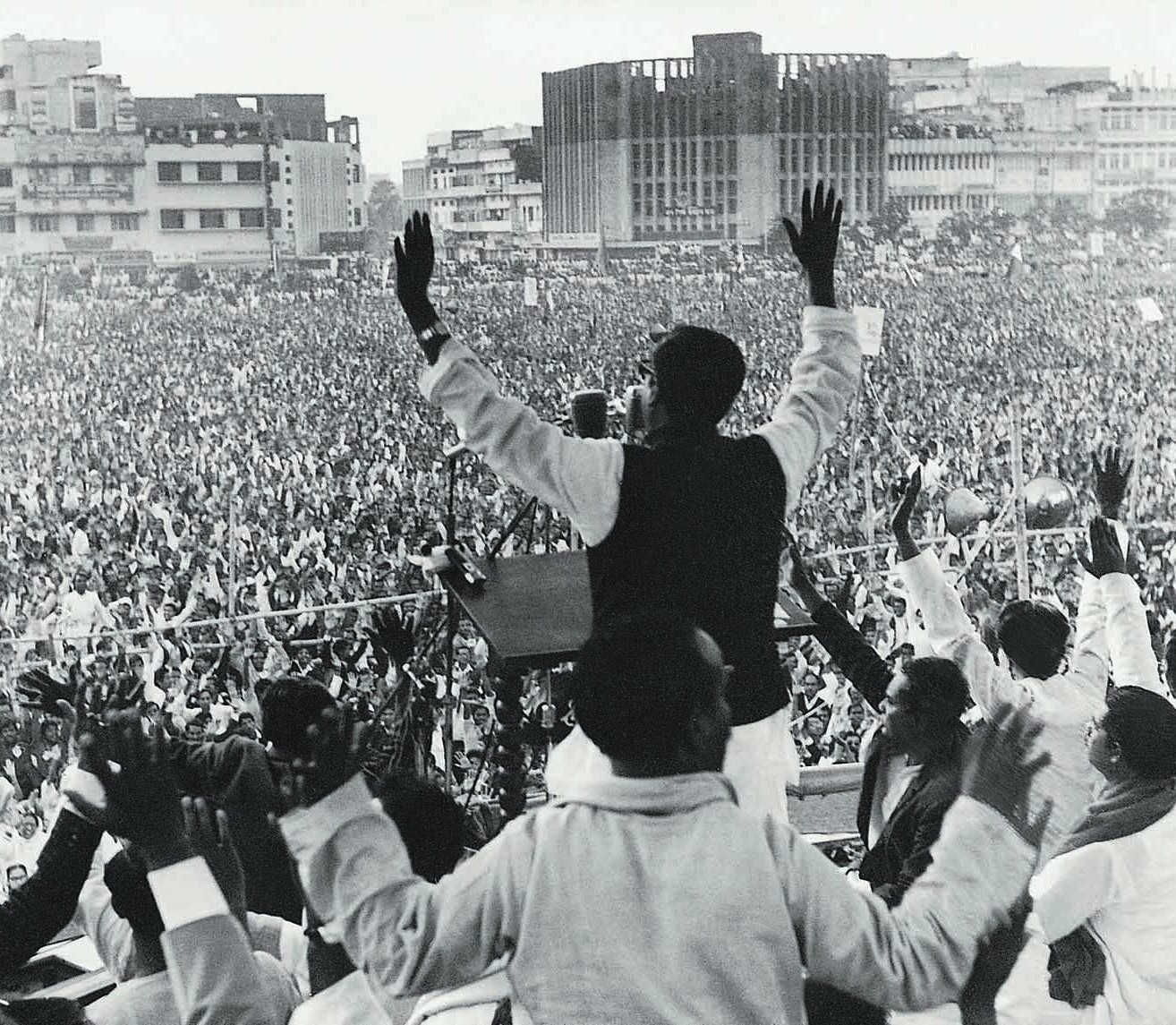
11th January 1970
”اس سے خطاب کرتے ہوئے شیخ مجیب الرحمٰن نے واشگاف الفاظ میں کہا کہ بنگالیوں نے 1956ء کے دستور میں برابری کے اصول کو تسلیم کر کے سخت غلطی کی تھی۔ اس نے دھمکی دی کہ اگر ’بنگلہ دیش‘ پر یہ اصول دوبارہ ٹھونسنے کی کوشش کی گئی، تو اس کی مزاحمت کی جائے گی اور عوام کے حقوق کے لیے تحریک چلائی جائے گی۔“
[میں نے ڈھاکہ ڈوبتے دیکھا، مصنف صدیق سالک، 16]
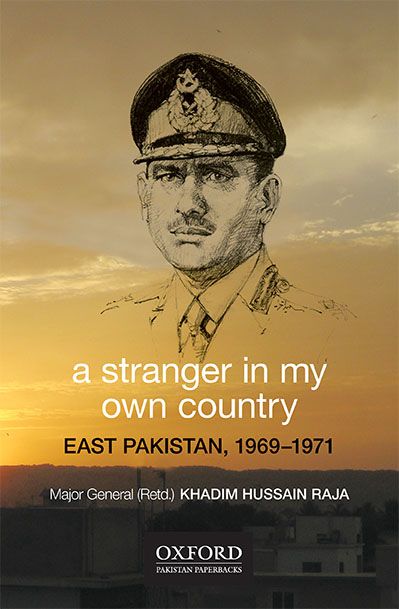
”اُن دنوں (جنوری 1970) مشرقی پاکستان میں پچیس ہزار کے لگ بھگ فوجی تعینات تھے۔“
[میں نے ڈھاکہ ڈوبتے دیکھا، مصنف صدیق سالک، 12]
“I failed to understand why the infantry, from both wings of the country, could not be integrated into mixed battalions ... I then suggested that the number of troops in East Pakistan was totally inadequate ... General Hamid assured me that, in case of an emergency, General Headquarters had already drawn up plans to reinforce East Pakistan.”
[A Stranger in my Own Country, 24-27]
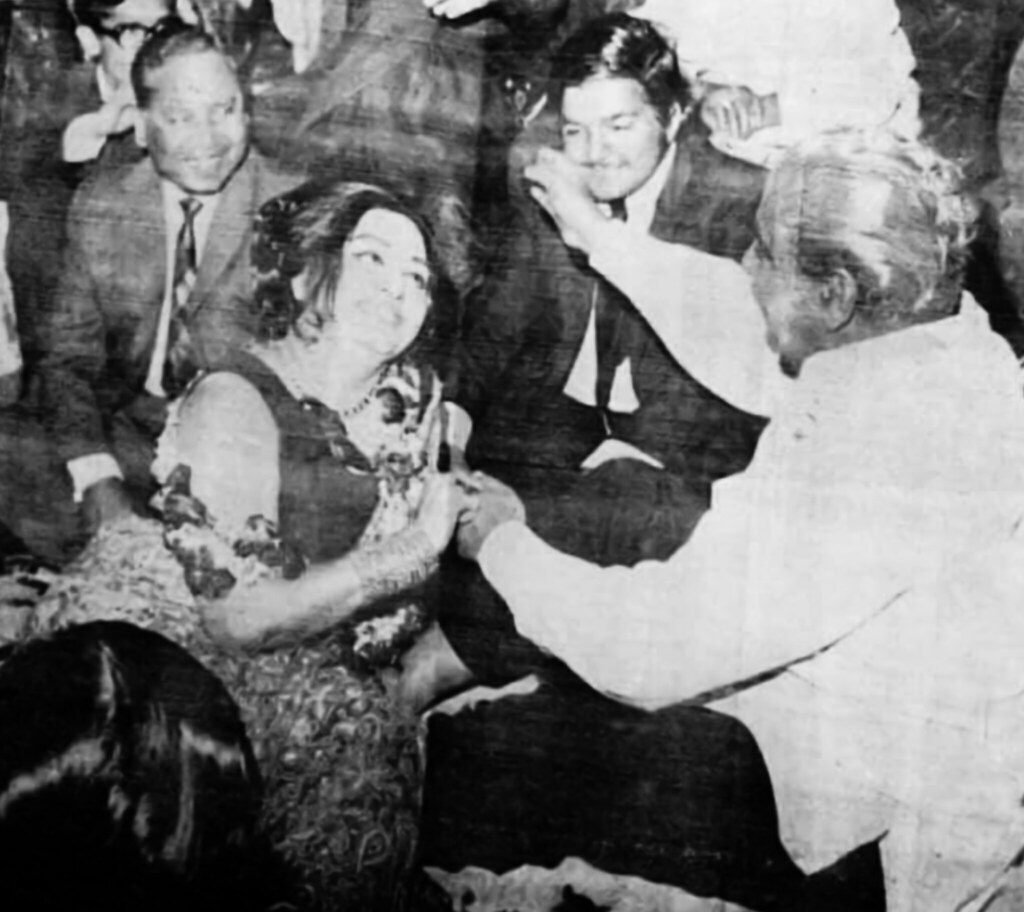
“It was also said that ‘comfort girls’ from West Pakistan were provided ... Some of the happenings in the President’s House, as reported by my Intelligence staff, are too disgraceful to be put into print.”
[A Stranger in my Own Country, 22-23]
“President Yahya Khan and Gen Abdul Hamid Khan (Chief of Army Staff) paid regular visits ... Governor and the Martial Law Administrator accompanied them to the President’s House, where they were left to their own pursuits ... disreputable women visited the President’s House during Yahya Khan’s trips to Dhaka.”
[A Stranger in my Own Country, 22]
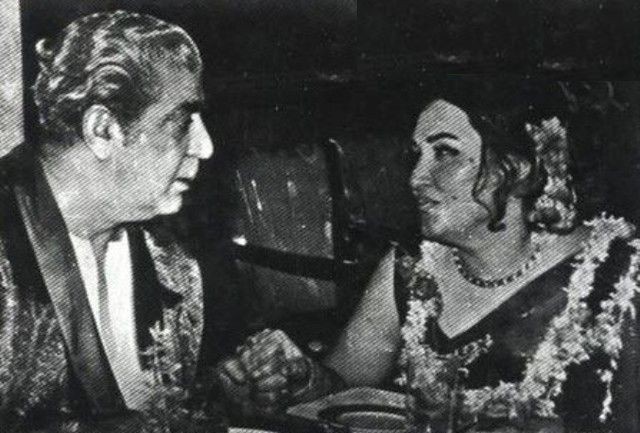
Legal Framework Order - 1970
“... West Pakistan was to be divided into the original four provinces; The elections would be held under the principle of universal suffrage i.e., one man, one vote.”
“28 March 1970: The Legal Framework Order was issued ... original name, Islamic Republic of Pakistan, was restored while the One Unit was dissolved.”
[A Stranger in my Own Country by Maj Gen Khadim Hussain Raja, 31 & 35]
“The Legal Framework Order was drafted in a drift, and acquired a major flaw, in the sense that a two-thirds majority - almost a universal convention - was not made a condition for framing of the Constitution. The 120-days limit placed on the Constituent Assembly, to produce a constitution on pain of dissolution ...”
[A Stranger in my Own Country by Maj Gen Khadim Hussain Raja, xvi]
The Deadly Cyclone of November 1970
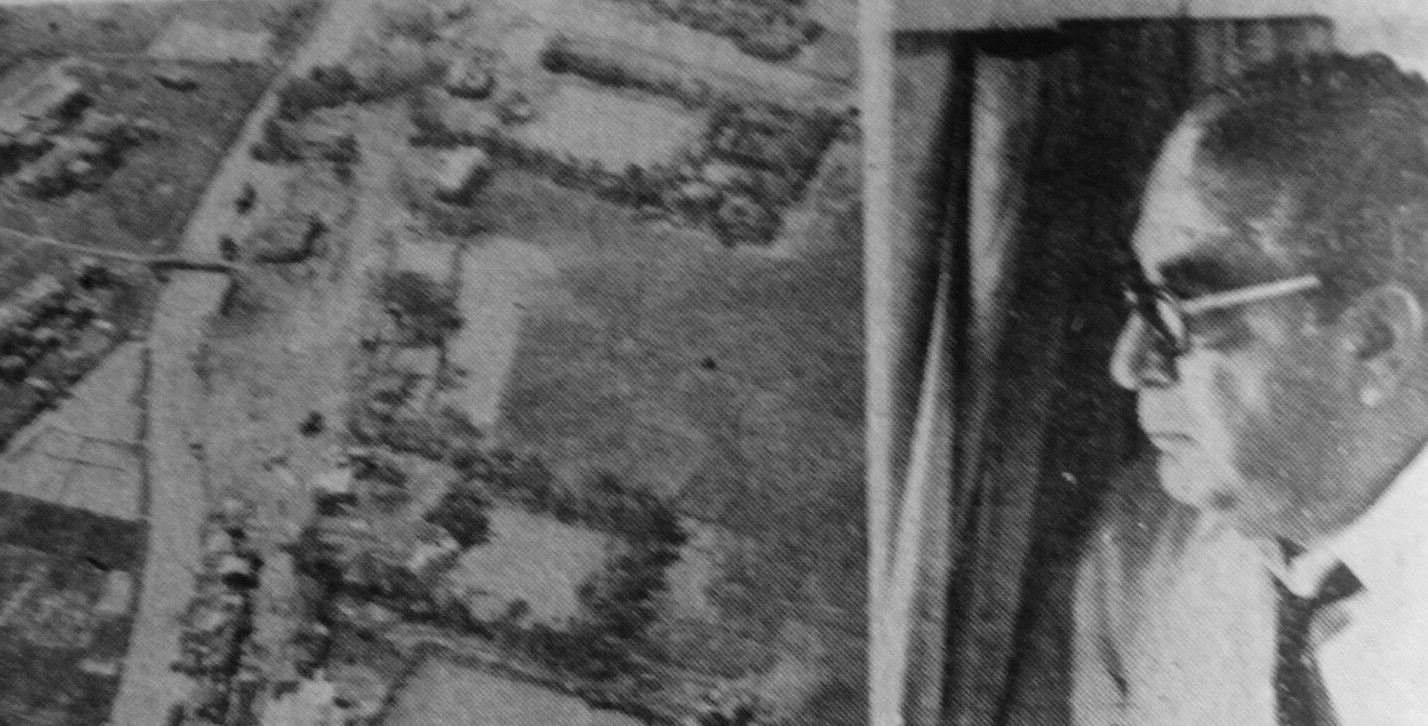
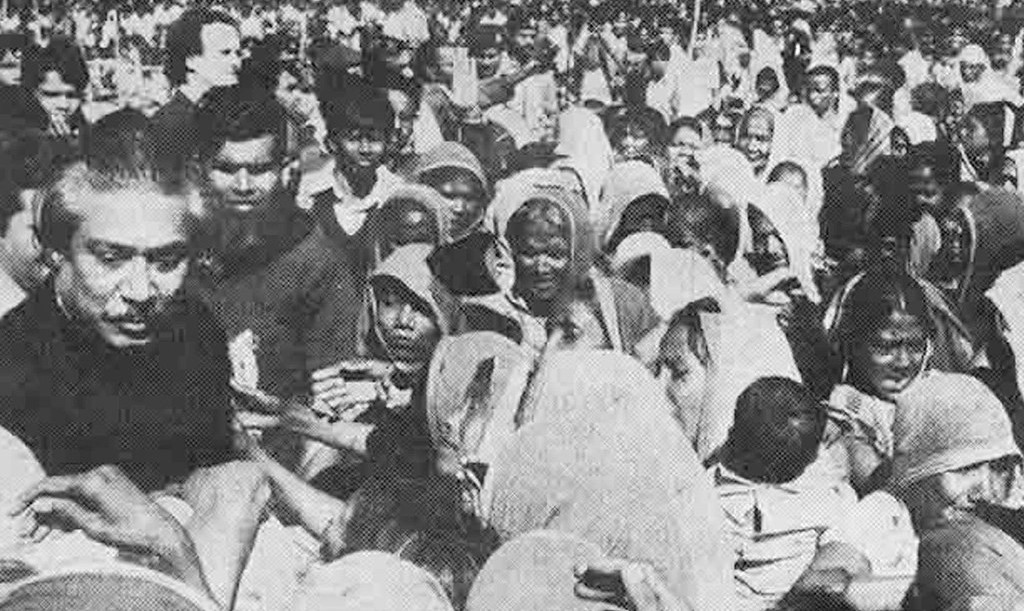
“... on 12 November 1970, Cyclone Bhola - the deadliest cyclone in human history - had ripped through the coast, killing over 300,000 people, leaving millions homeless ...”
“... the cyclone in East Pakistan saw them being pushed in December.”
[Operation X, 1 & 5]
Elections of 1970
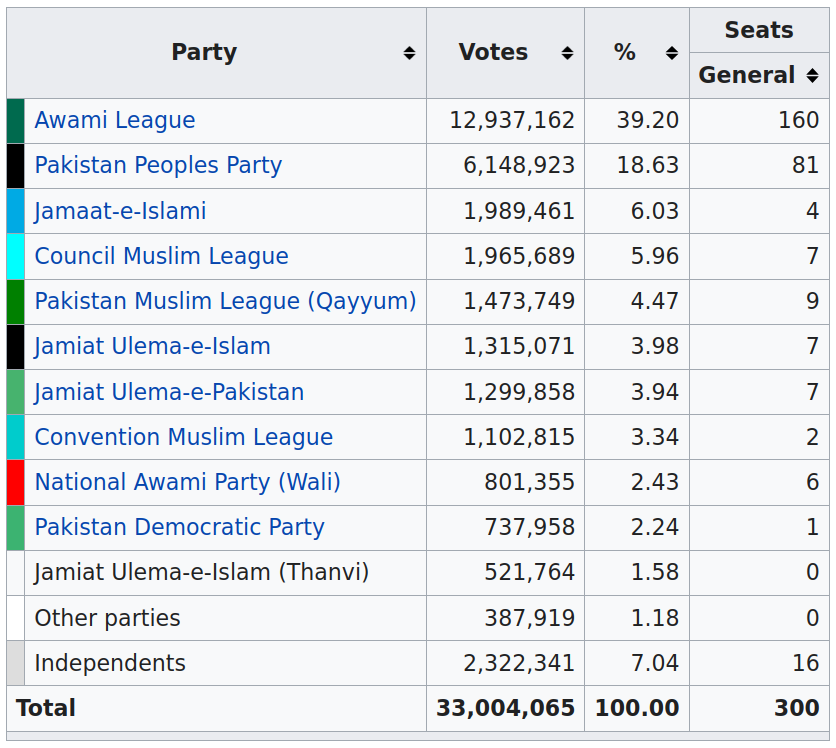
“... League had no presence in West Pakistan and did not win a single seat from here in the December, 1970, elections. Similarly, the PPP had no presence in the former East Pakistan and did not win a single seat from there.”
[Beyond the Vision by Dr Aftab Ahmad, 76]
“Sheikh Mujib’s Awami League concentrated on East Pakistan and contested out 7 out of 138 seats in West Pakistan. Similarly, Bhutto’s Pakistan Peoples Party focused on West Pakistan and did not field any candidates at all in East Pakistan.”
[Dead Reckoning by Sarmila Bose, Page 19]
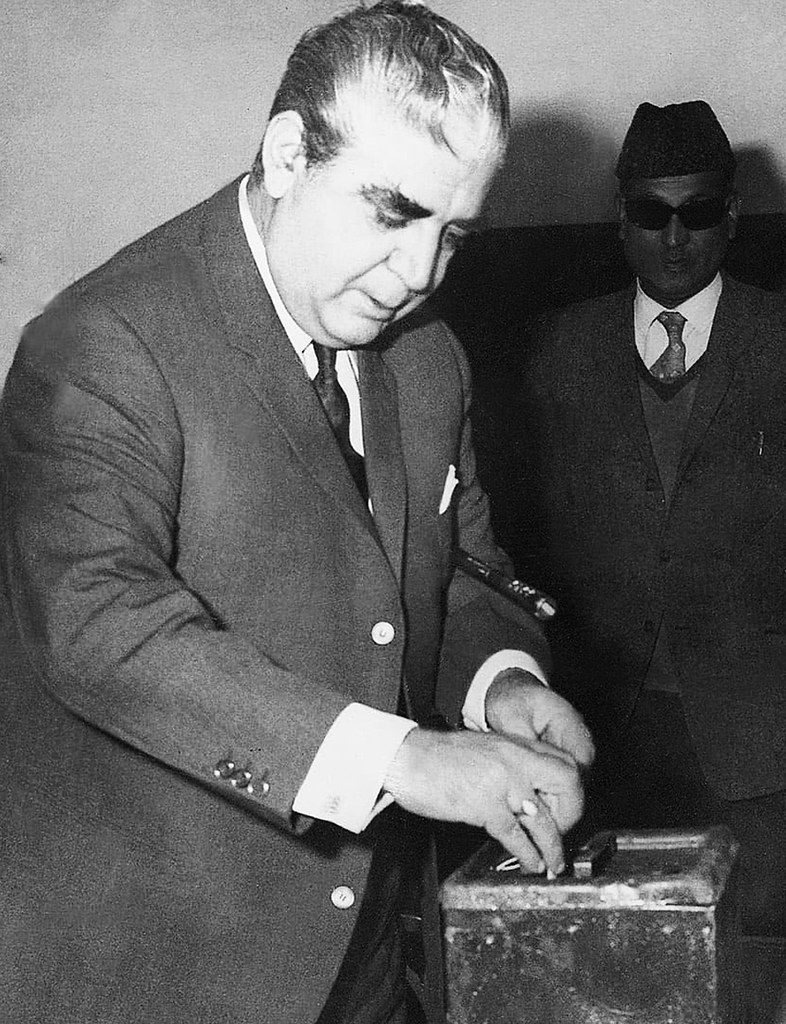
“... we were regularly visited by the Director General of the Inter-Services Intelligence, Major General Mohammad Akbar Khan and the Director of the Intelligence Bureau (IB), Mr Rizvi.”
“I have reason to believe that there was a lot of misreporting by these two agencies.”
[A Stranger in my Own Country, 21-22]
“The popular guess was that Yahya Khan wanted to win over Mujib so that he could continue as the President even after the lifting of martial law.”
[Witness to Surrender by Siddiq Salik, 19]
“Mr Bhutto ... said in Lahore on 20 December, ‘No constitution could be framed nor could any government at the centre be run without my party’s co-operation.’”
[Witness to Surrender by Siddiq Salik, 31]
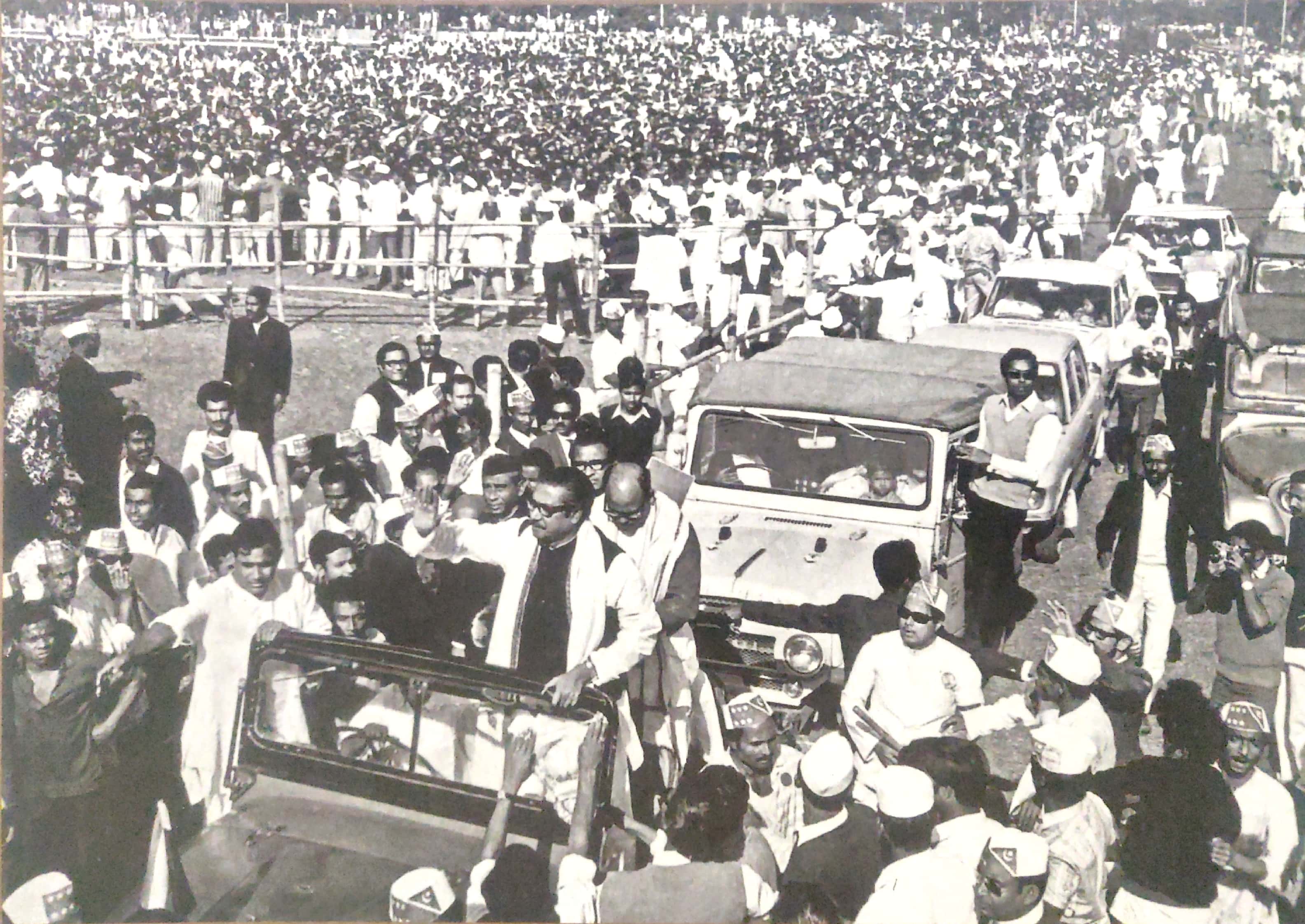
“... on 3 January ... rally at Dacca where all the Awami League MNAs and MPAs took an oath of allegiance to the Six Points ... that shall remain whole-heartedly faithful to the people’s mandate to the Six Points and the eleven-point programme.”
[Witness to Surrender by Siddiq Salik, 32]
Yahya in Dhaka to Understand Six Points
“Yahya ... publicly announced (in Dacca, on 14 January 1971) that Mujibur Rahman would be the country’s next prime minister.”
[The Emergence of Bangladesh by Wayne Wilcox, 21]
“On 12 January 1971, General Yahya Khan held a decisive meeting with Sheikh Mujib ... in disgust. He left Dhaka in some anger and went straight to Larkana where he was Bhutto’s guest. They were joined by General Abdul Hamid Khan.”
[A Stranger in my Own Country by Maj Gen Khadim Hussain Raja, 41]
Hijacking of Indian Airplane in 1971
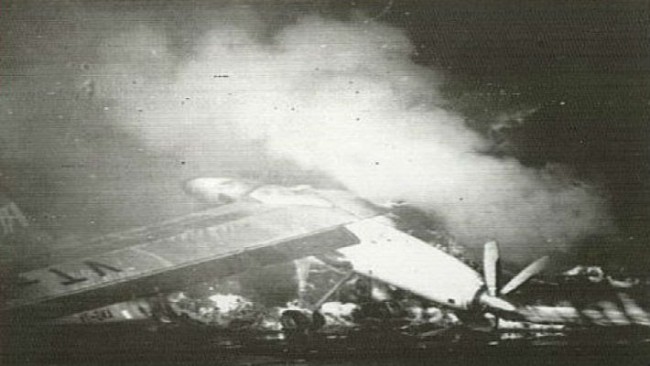
“On 30 January that year, an Indian aircraft was hijacked to Lahore by two Kashmiri separatists. India suspended all Pakistani overflights over its territory. The air bridge between the two wings of Pakistan shifted thousands of kilometres down south, via Colombo.”
[Operation X, 11]
“Emotionalists as we are, we welcomed the two Kashmiri hijackers without delving into the issue. The Kashmiris were given asylum. Pakistan had fallen into a trap, since this gave the Indians a strong reason to suspend the flights of Pakistani aeroplanes over Indian territory. Later ... revealed that the hijacking was planned by India to give them an excuse to suspend flights between East and West Pakistan.”
[The Betrayal of East Pakistan, 40]
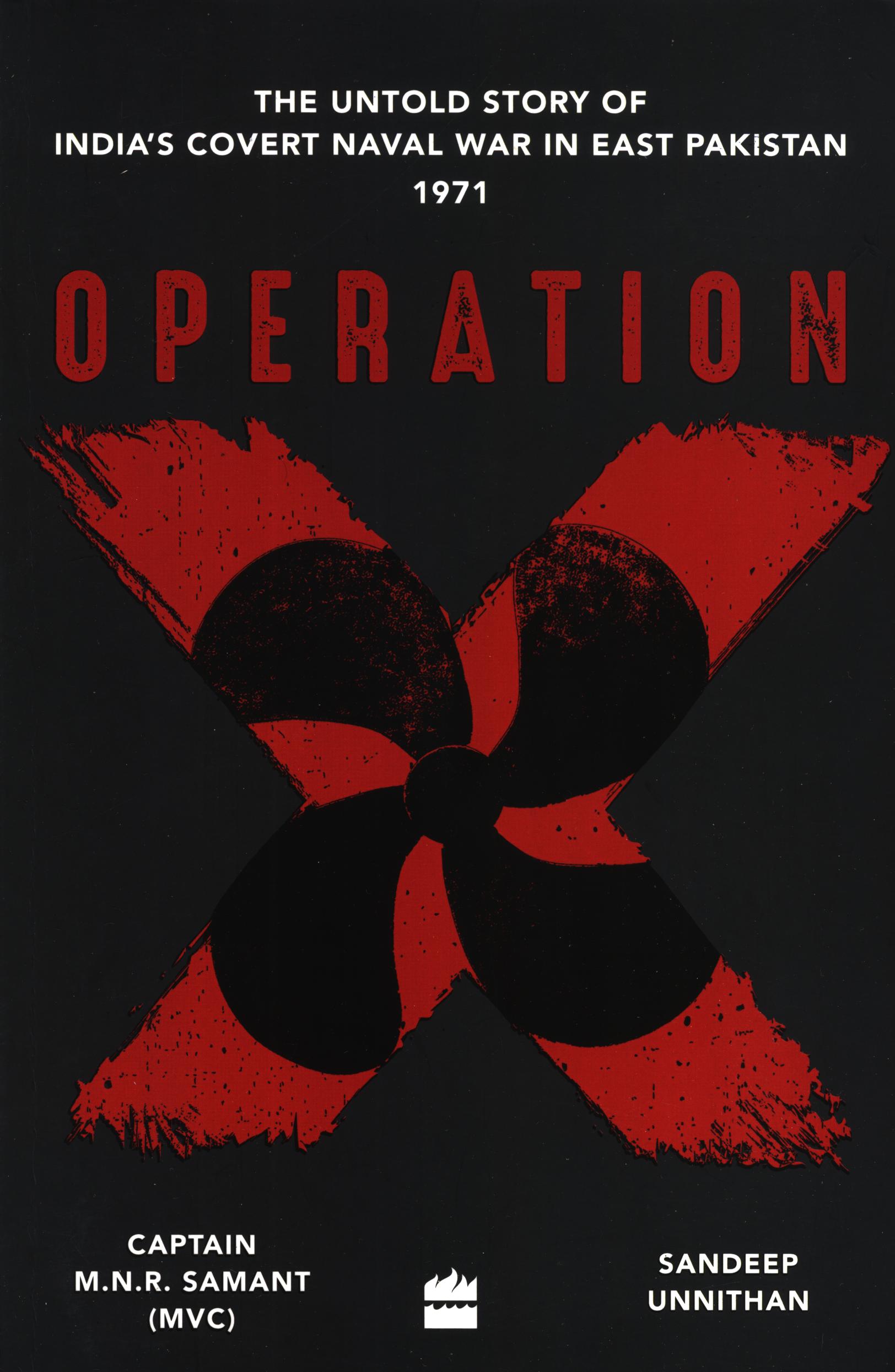
“More than four decades after Bangladesh was liberated ... These operations were undertaken well before the actual declaration of war in December 1971 ... It also sheds light on how Prime Minister Indira Gandhi personally approved and regularly monitored the covert naval operations in Bangladesh, which were undertaken under the supervision of the then naval chief, Admiral S.M. Nanda and the director of naval intelligence, Captain (later Vice Admiral) M.K. Roy ... The book spells out how covert operations on foreign soil are conducted ...”
“The problem could only be solved politically now; any attempt at the use of force would divide both the wings forever, causing untold misery and bloodshed among the people. Yaqub felt that the President should visit Dhaka in person at the earliest, and take decisions that only he could take.”
[A Stranger in my Own Country by Maj Gen Khadim Hussain Raja, 52]
“Admiral Ahsan was replaced by Lt Gen Yaqub as Governor of East Pakistan on 1 March 1971. Within four days, he resigned as Governor and Commander, Eastern Command, saying that he ‘could not kill his Pakistani brothers’ ... After resigning, Yaqub went to Karachi ... He was demoted to the rank of Major General and pensioned off.”
[The Betrayal of East Pakistan by Lt Gen A.A.K. Niazi, 42]
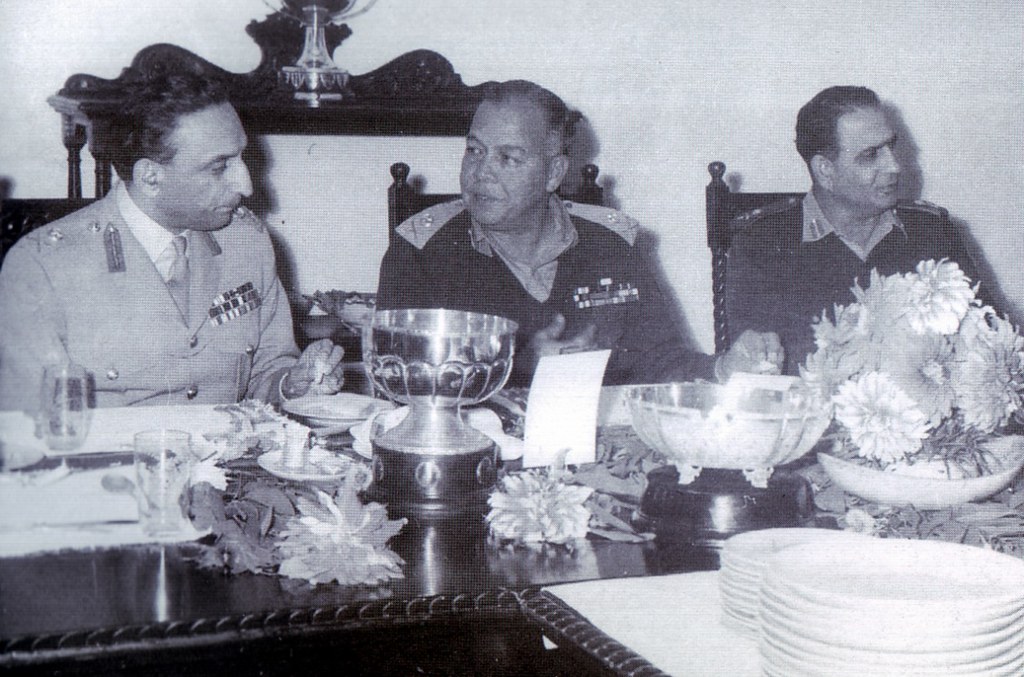
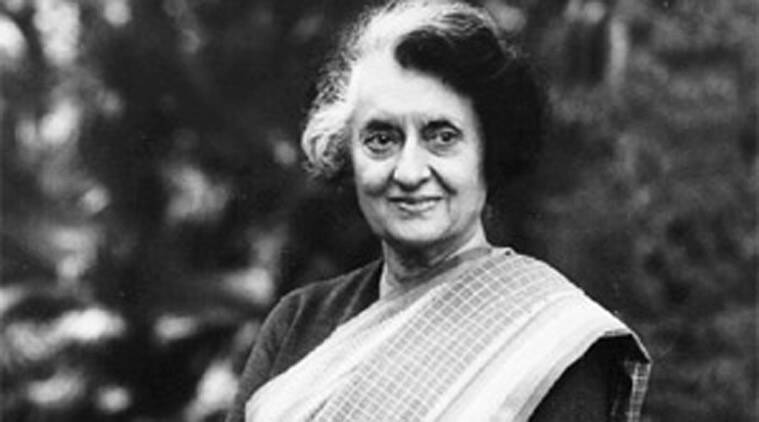
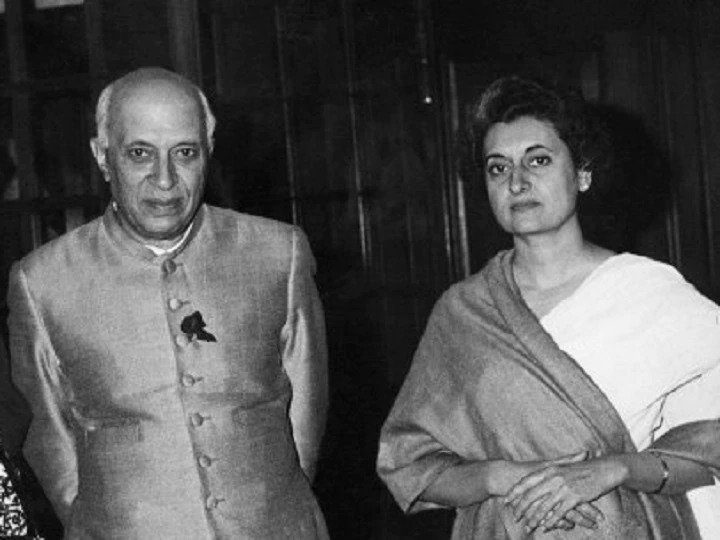
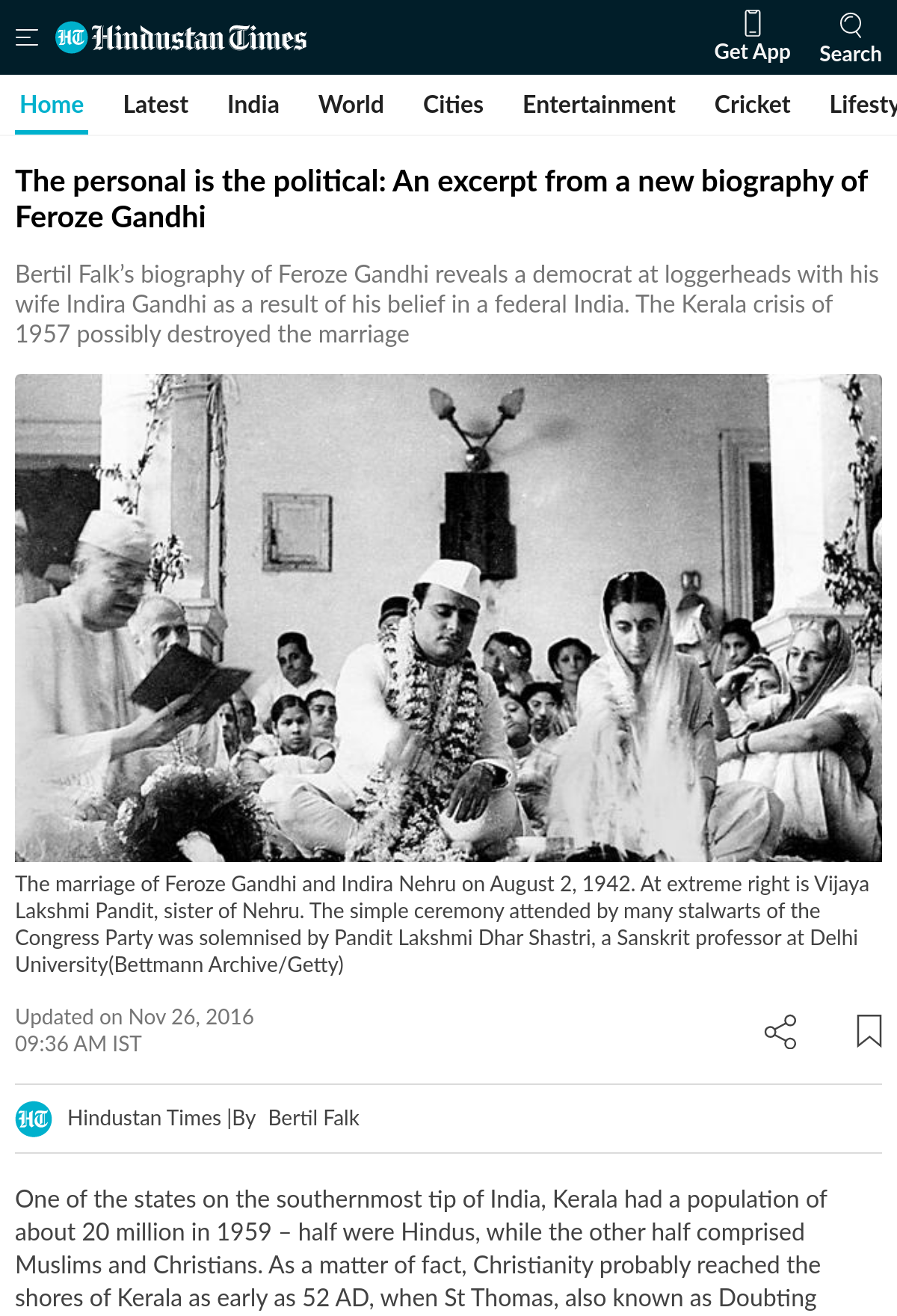
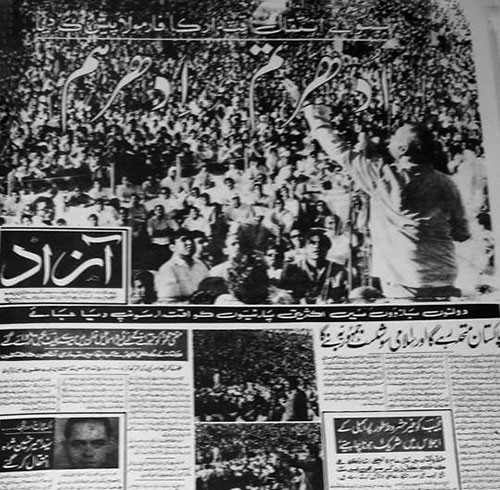
“In short, Yahya Khan, because of his lack of political sense, stupid miscalculations, personal ambition and belief in the power of the gun, had messed up things completely at the political level.”
“He was no statesman and no politician ... failed and failed miserably even as a general, in his army action in the former East Pakistan.”
“Later, when Yahya Khan launched the army action Bhutto endorsed it by saying, ‘Pakistan has been saved.’”
[Beyond the Vision by Dr Aftab Ahmad, 79-80]
1971 Dhaka University Massacre
“... usually missing in the popular narrative on the military action as told in Bangladesh and India, which merely highlights that the army killed ‘students’ (and professors) in the university. Presented that way, the army action at the university is simply depicted as a massacre of unarmed civilians whose political beliefs the regime did not like.”
[Dead Reckoning by Sarmila Bose, Page 51]
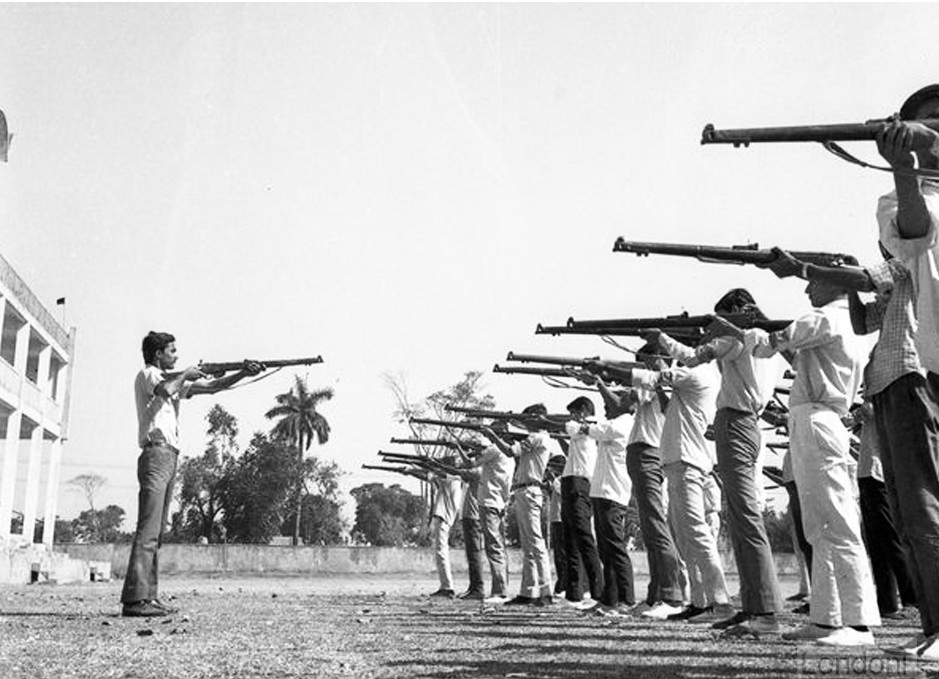
“Photographs of marching girls carrying rifles appeared in the foreign media ... displayed with pride in the Liberation War Museum in Dhaka.”
“Normal university activities had closed down from the beginning of March ... had gone home as there were no classes.”
[Dead Reckoning by Sarmila Bose, Page 26 & 51]
“... the students of Dhaka University had mostly left the student halls, and other people had arrived to take part in the training. Some of them may have been students ... Their slogan was ‘Bir Bangali ostro dhoro, Bangladesh swadhin koro’ (Brave Bengalis take up arms, make Bangladesh independent).”
[Dead Reckoning by Sarmila Bose, Page 53]
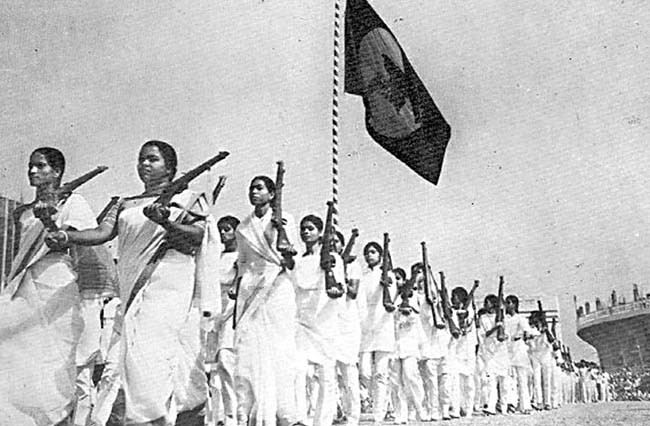
“None of the Bengali eye-witness accounts, nor the testimony to me of Pakistan army officers involved in the action, nor the evidence of the recorded radio ... Yet a story had circulated in 1971, repeated to me by members of the Bangladeshi intelligentsia, about the women’s hostel being attacked and girls jumping out of the windows. In reality, like the other hostels, Rokeya Hall had also emptied of its normal residents before 25 March ...”
“As political turmoil mounted, the girls started to leave the hostel and on 25 March 1971 there were only seven students left ... All seven survived unharmed and departed with their guardians on 27 March when the curfew was lifted.”
[Dead Reckoning by Sarmila Bose, Page 57]
1971 Dhaka University Mass Grave
“When I first heard about a ‘mass grave’ in the field outside Jagannath Hall I expected that it had been dug up as soon as Bangladesh became independent and the bodies counted, identified and taken for proper funerals by the families of the dead, with a memorial with the relevant information erected on the site. I found that no such thing had happened. There is a memorial, but at the side of the field ... why the families of those allegedly buried there would not demand retrieval of the bodies of their loved ones ... Sheikh Mujib was in power till August 1975 ...”
[Dead Reckoning by Sarmila Bose, Page 68]
Sardah Police Academy
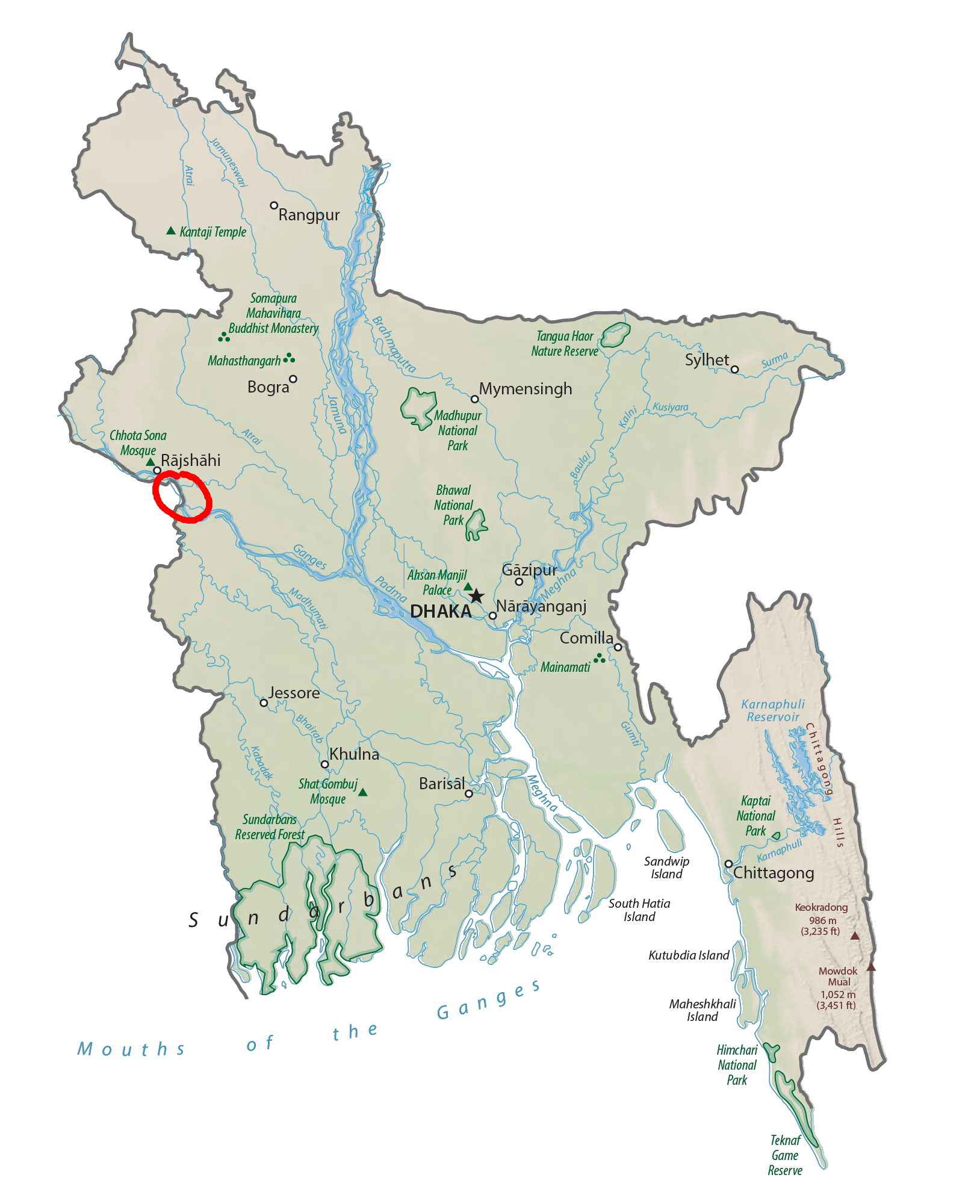
Thanapara Village on the border with India, separated by the Padma River
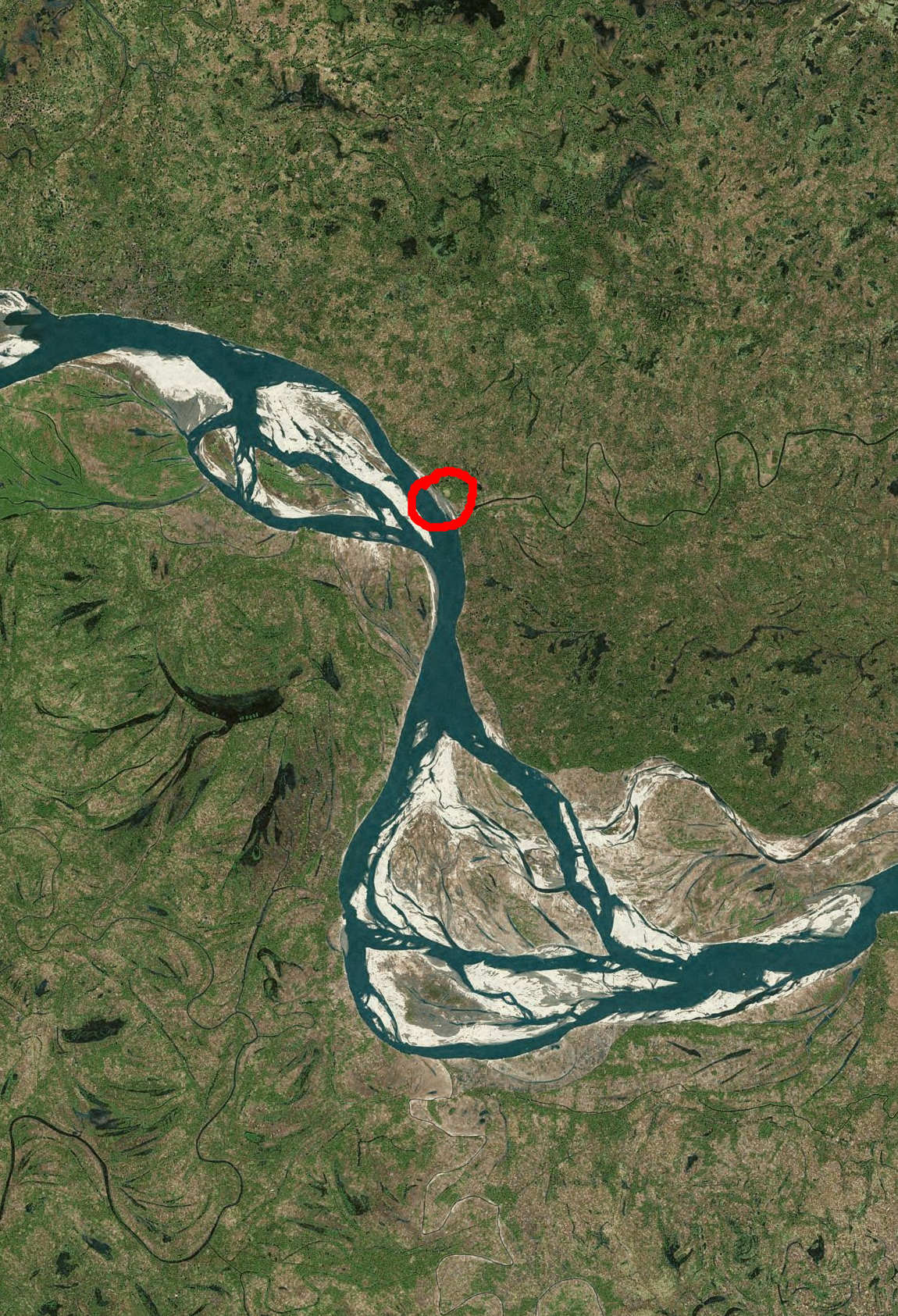
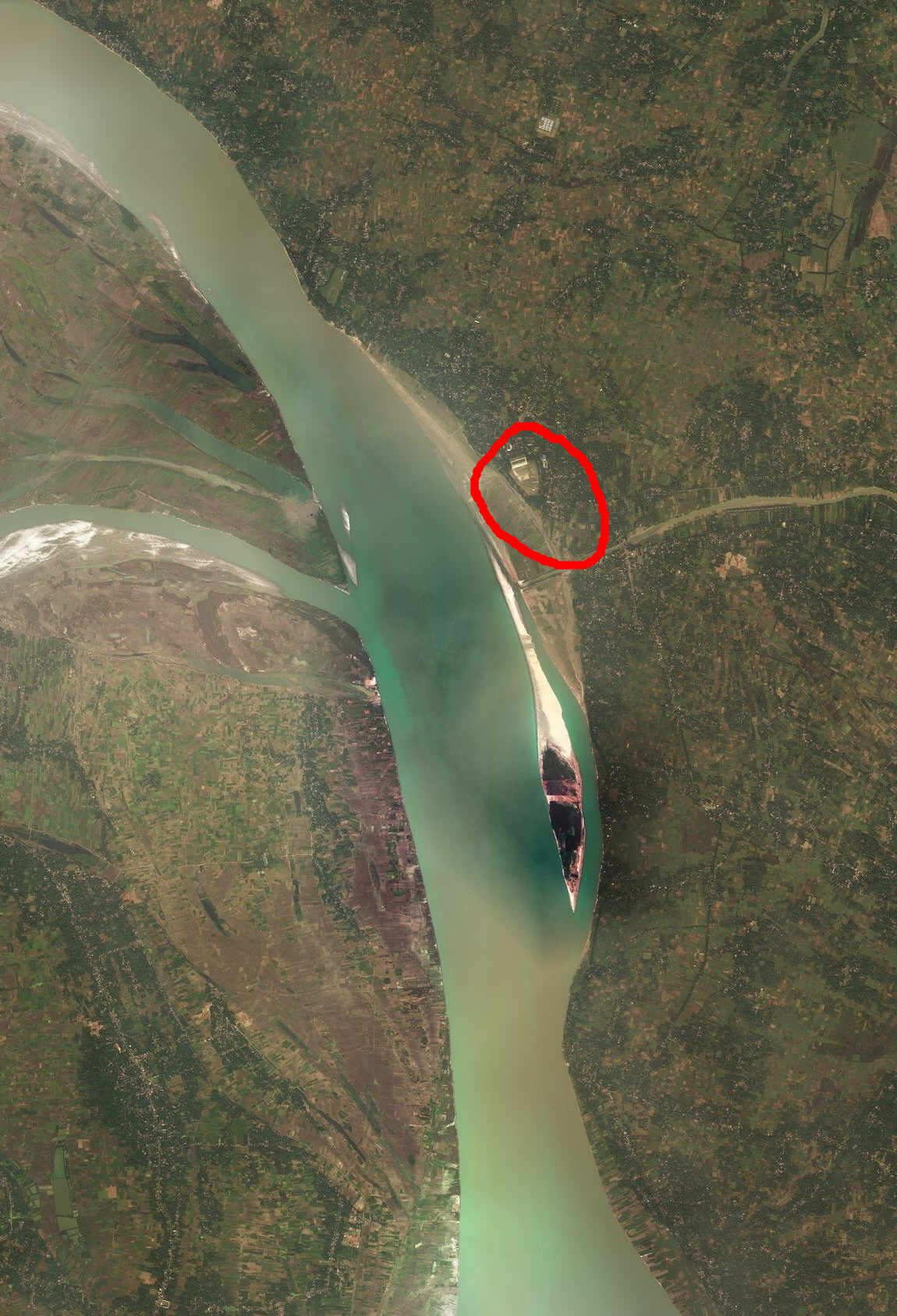
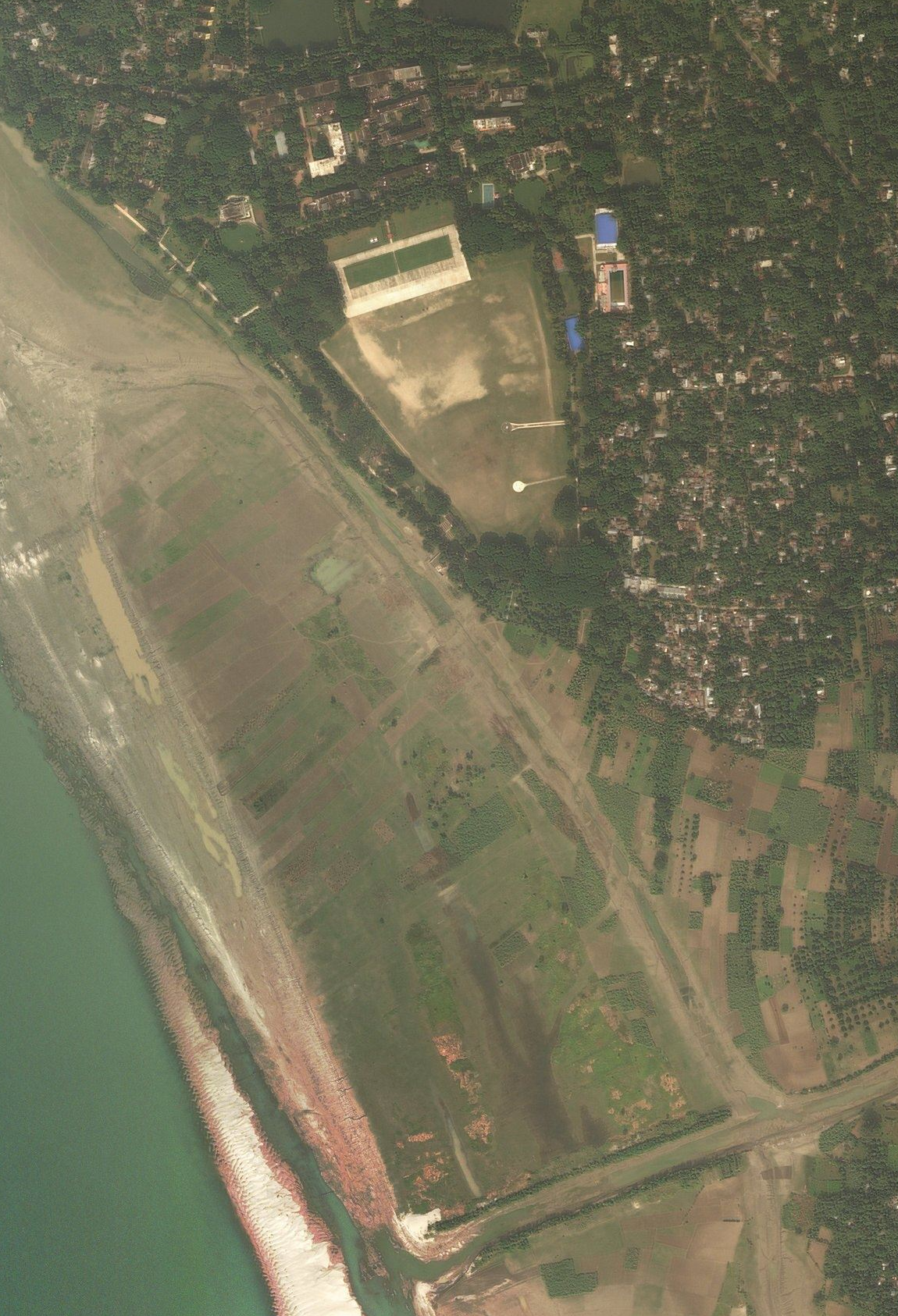
“On 10 April, I handed over charge ... last to enter was Niazi, who was wearing a pistol holster on his webb belt.”
“... Niazi became abusive and started raving ... said, ‘Main is haramzadi qaum ko nasal badal doon ga. Yeh mujhe kiya samajhtey hain.’ He threatened that he would let his soldiers loose on their womenfolk ... A Bengali officer, Major Mushtaq, who had served under me in Jessore, went into a bathroom at the Command Headquarters and shot himself in the head.”
“11 April was going to be my last in Dhaka ... Command Headquarters to meet literature General Niazi ... he put his hand on my shoulder and said, ‘Yar, larai ki fikar nahi karo, woh to hum kar lain gey. Abhi to mujhey Bengali girlfriends kay phone numbers day do.’ ... I walked out saying, ‘General, you should have known me better.’”
[A Stranger in my Own Country by Maj Gen Khadim Hussain Raja, 97-98]
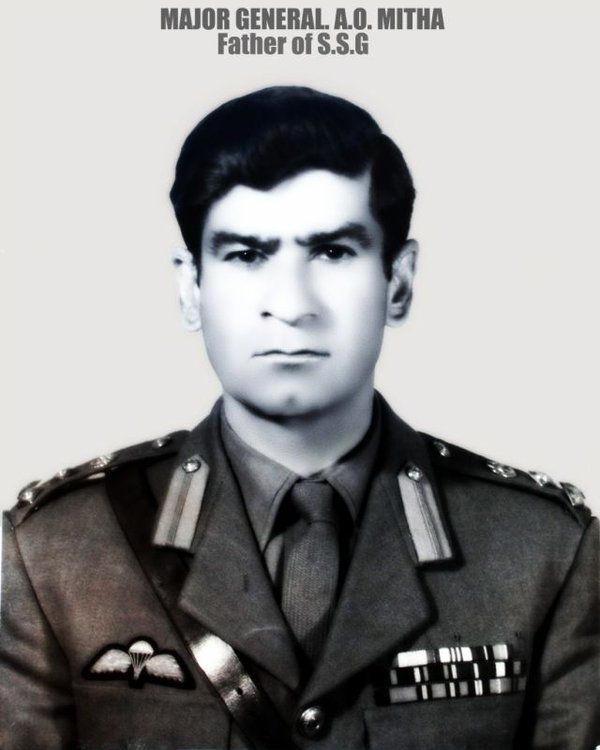
Decision on Sh. Mujib
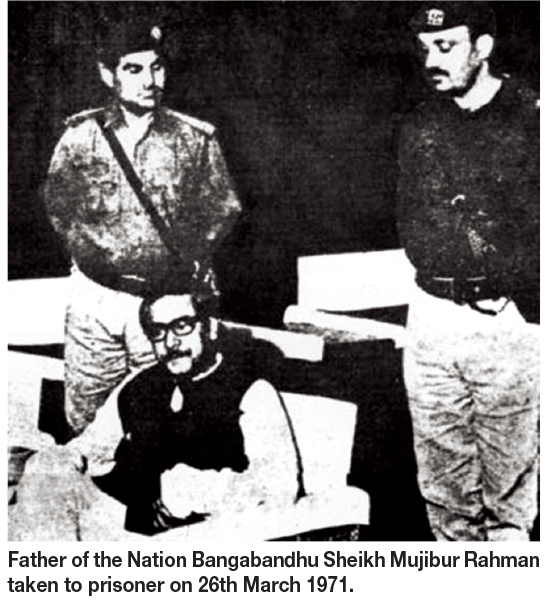
“An interesting example is Anthony Mascarenhas’ famous report in the ‘Sunday Times’ published on 13 June 1971. His eye-witness description ... of the army’s attack on the Hindu area of Shankharipara in old Dhaka on 25-26 March - where he was not present - is given without citing any source and turns out to be entirely inaccurate according to the information obtained from my interviews with survivors of Shankharipara.”
[Dead Reckoning by Sarmila Bose, Page 10-11]
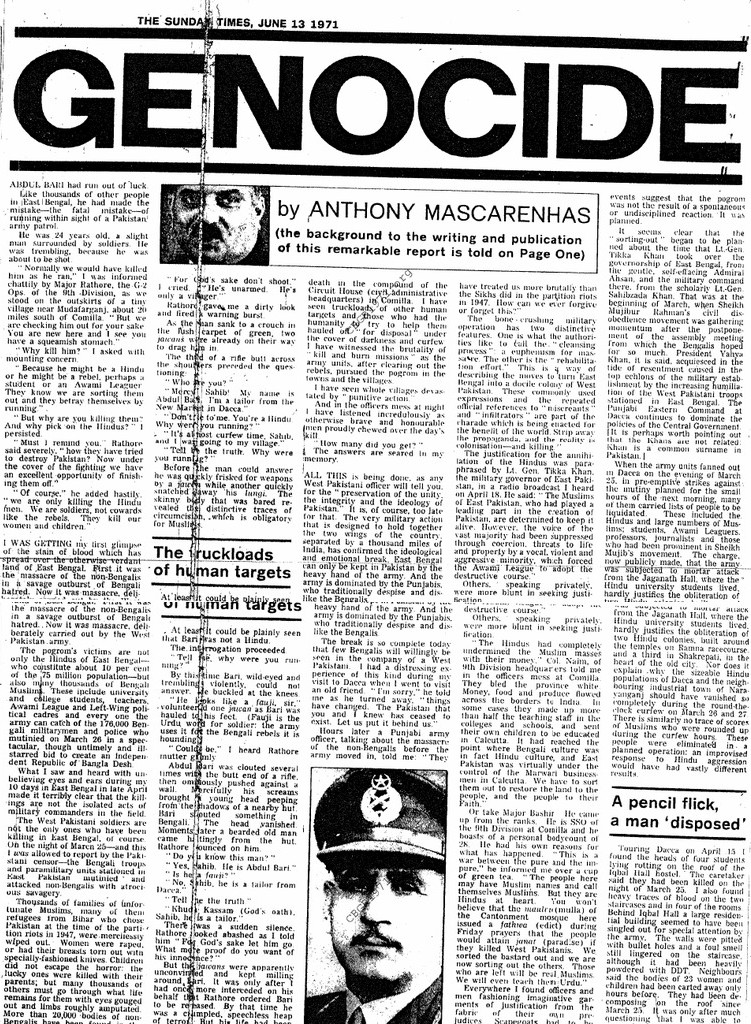
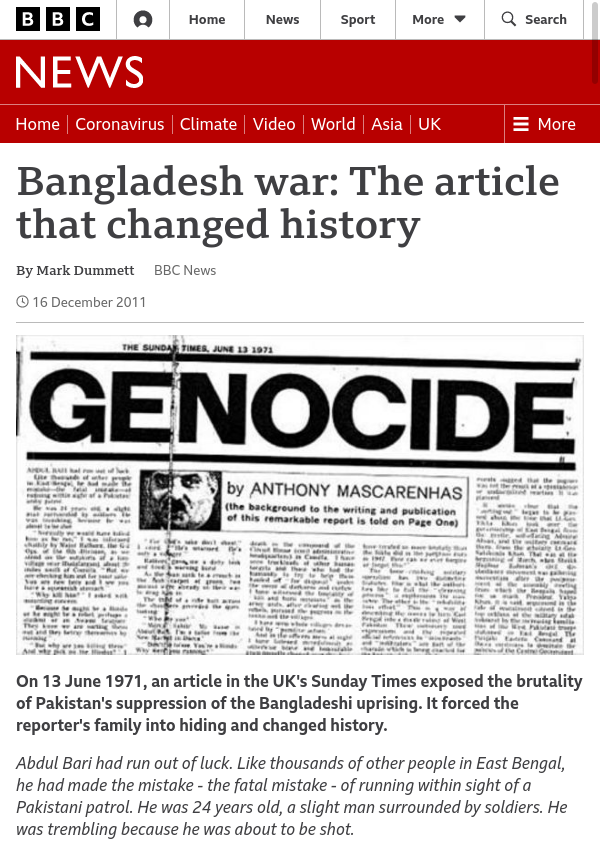
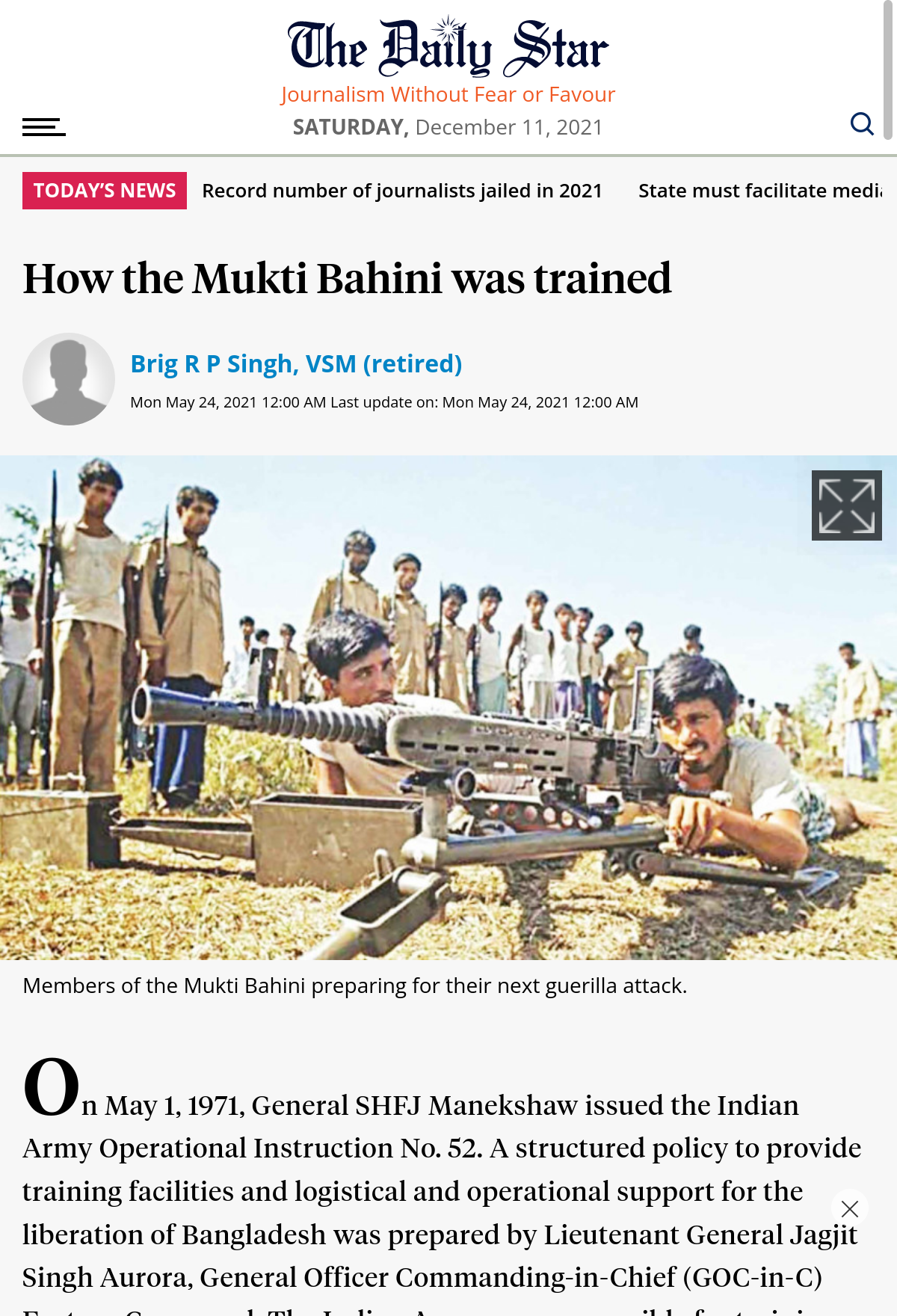
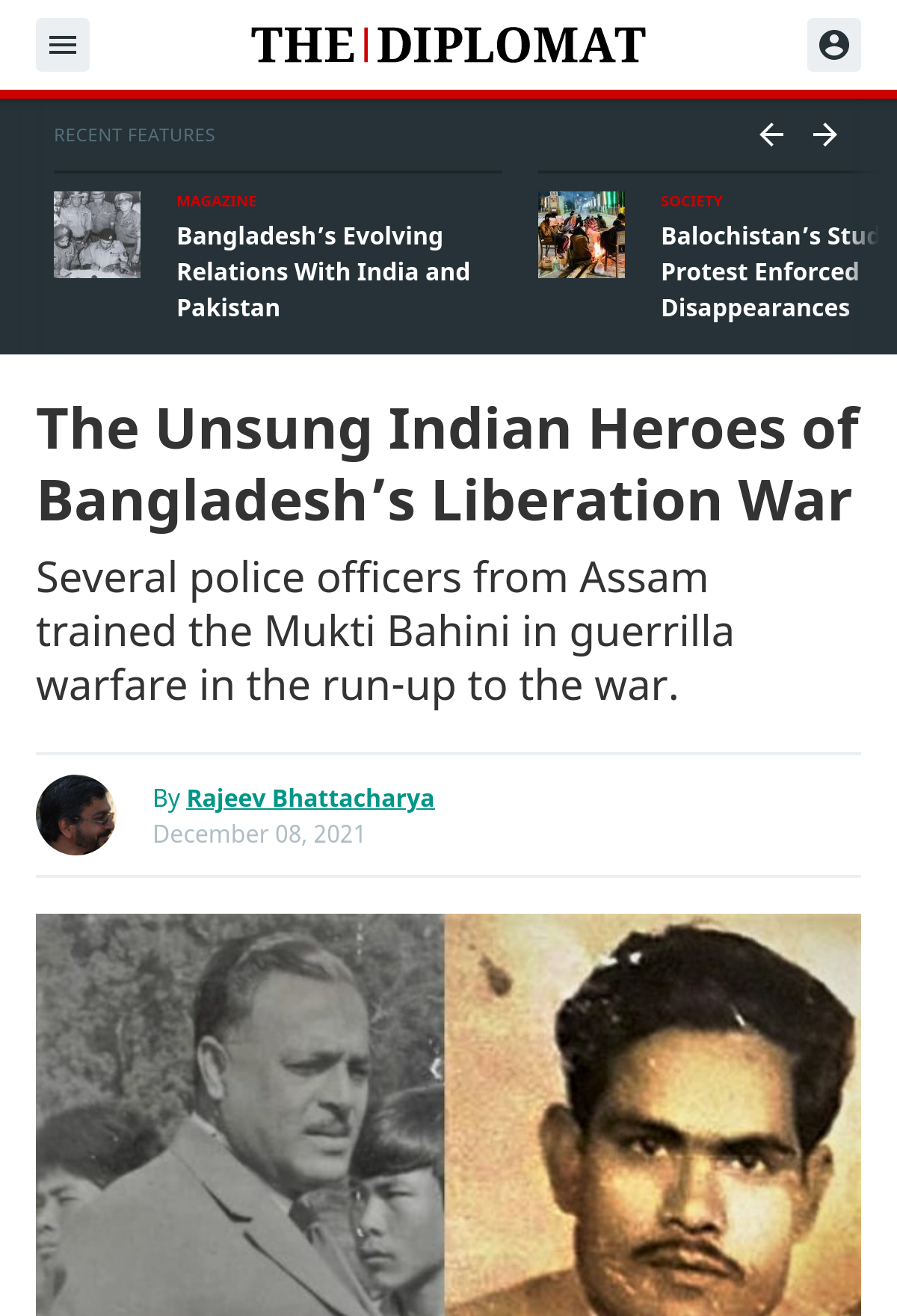
“Eight Bengali naval personnel deployed in a recently acquired French built submarine, the PNS Mangro, decided to desert the Pakistan Navy and join the freedom struggle ... submarines found their way to the Indian Embassy in Madrid ...”
[Operation X, x]
“... exited from Spain as Pakistanis and entered Rome as Indians.”
[Operation X, 27]
“The eight Mangro crew could form the nucleus of a Mukti Bahini naval commando team, based in India, to strike in the riverine areas of East Pakistan.”
[Operation X, 38]
“... General Yahya Khan discovered that he could not solve the crisis.”
[A Stranger in my Own Country, 47]
“When President Yahya was told about the Indian invasion he said, ‘What can I do for East Pakistan? I can only pray.’”
“The government in power did not take the case of the Indian invasion to the UN Security Council straight away.”
[The Betrayal of East Pakistan, xxv]
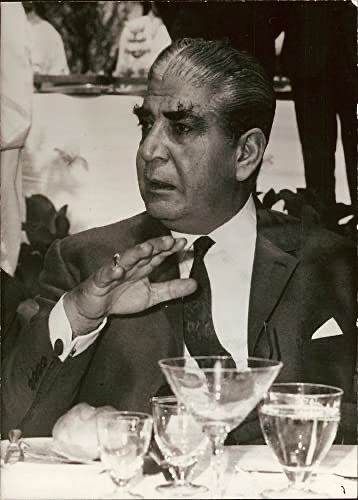
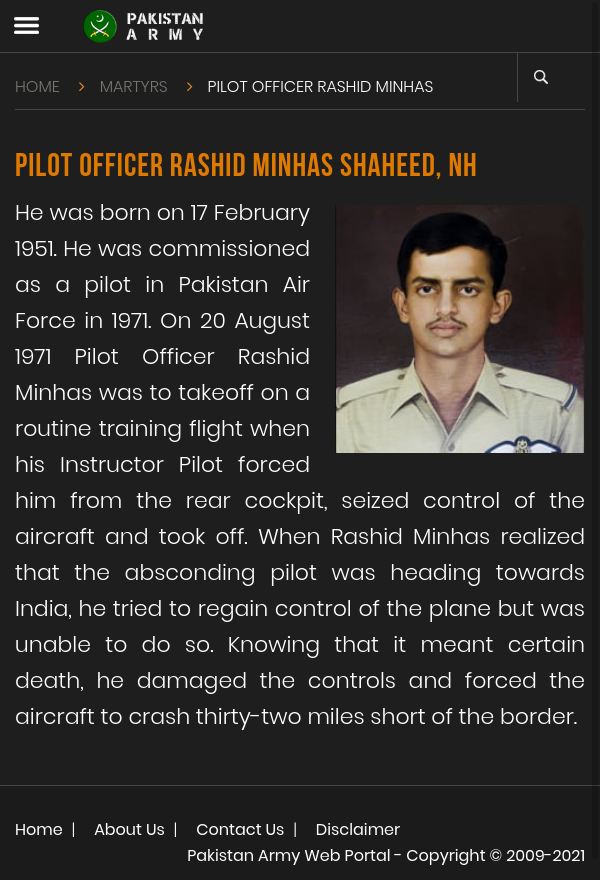
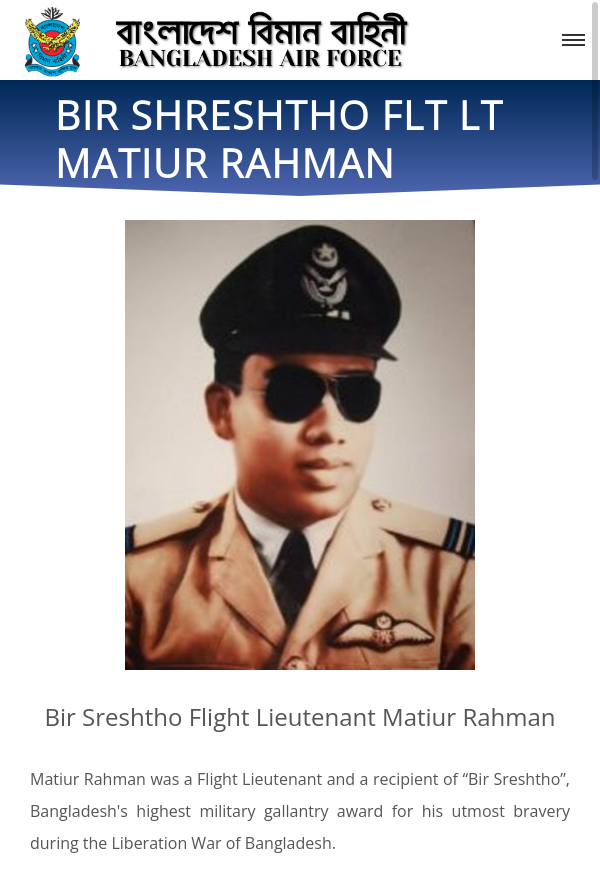
Indo-Soviet Treaty of Peace, Friendship and Cooperation - August 1971
“The Pakistan Army in East Pakistan fought very gallantly but they had no chance. They were a thousand miles away from their base. I had eight or nine months to make my preparations. I got a superiority of almost fifty to one. They just had no chance but they fought very gallantly.”
[BBC Face to Face Interview: https://www.youtube.com/watch?v=L-tgRl_VK_Q]
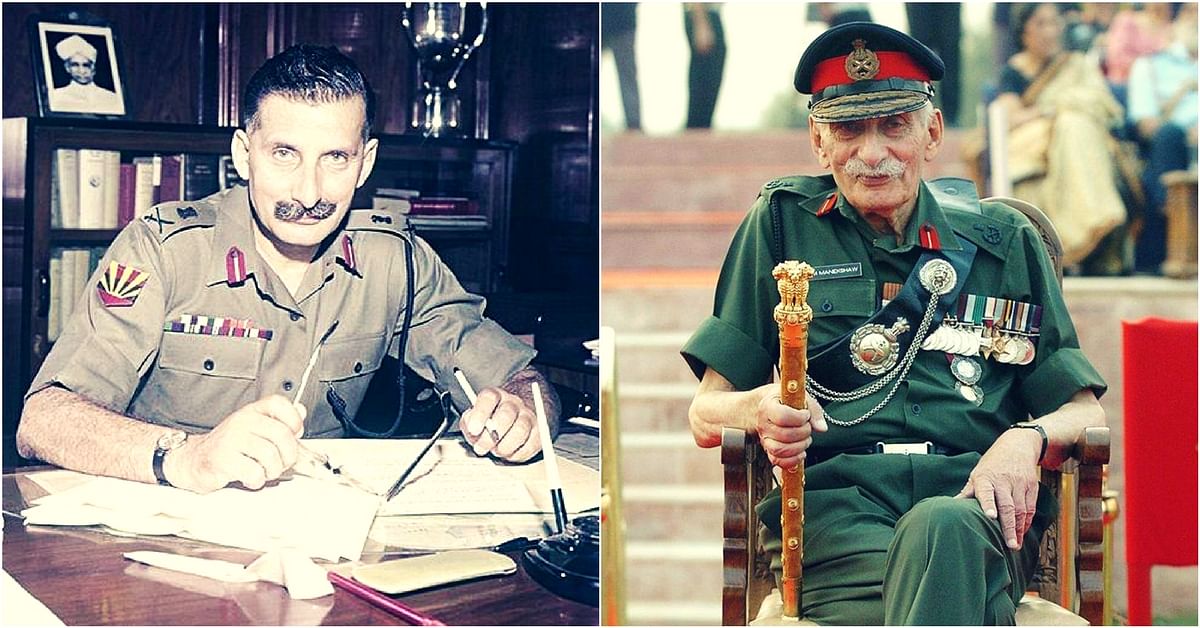
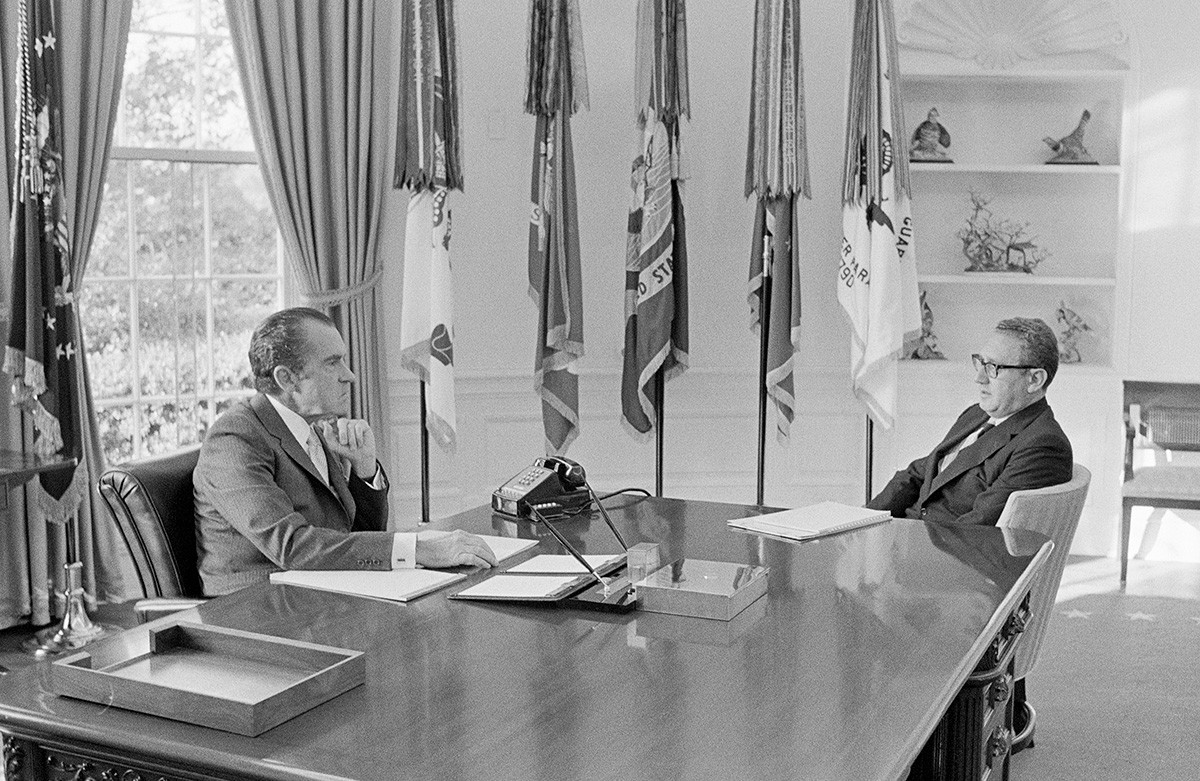
“The Western Garrison ... lost 5,500 square miles of territory ... we were told to lay down arms. When I hesitated, they told me that the situation in West Pakistan was critical.”
[The Betrayal of East Pakistan, xxvi]
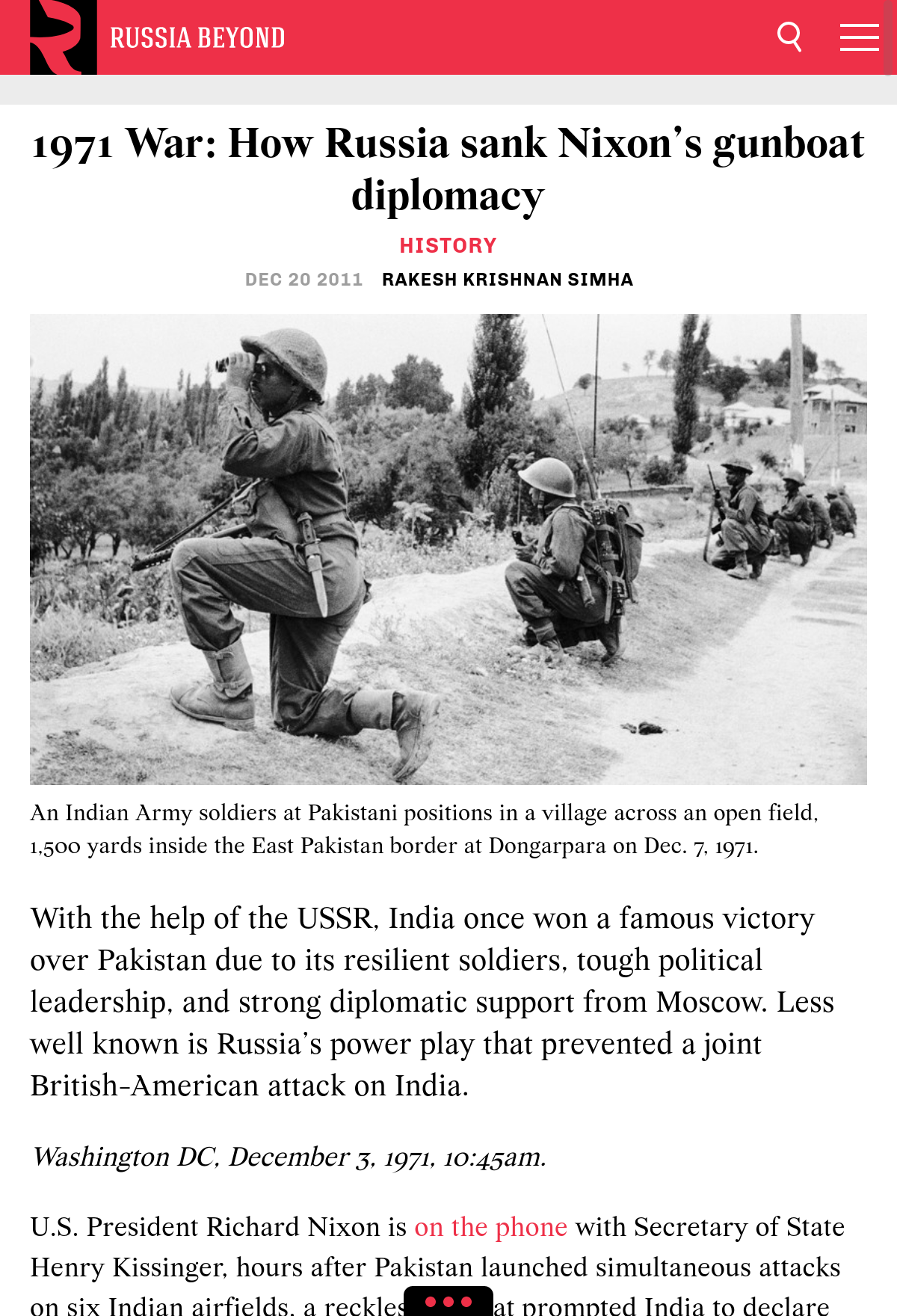
“... The Pakistani nation is a brave nation. One of the greatest British generals said that the best infantry fighters in the world are the Pakistanis. We will fight. We will fight for a thousand years, if it comes to that ... Muslim Bengal was a part of Pakistan of its free will, not through money ... And now in the Security Council we have been frustrated by a veto ... You can take your Security Council. Here you are. I am going.”
[After addressing the UNSC Session in New York, 15th December 1971]
Bhutto leaves the UN Security Council
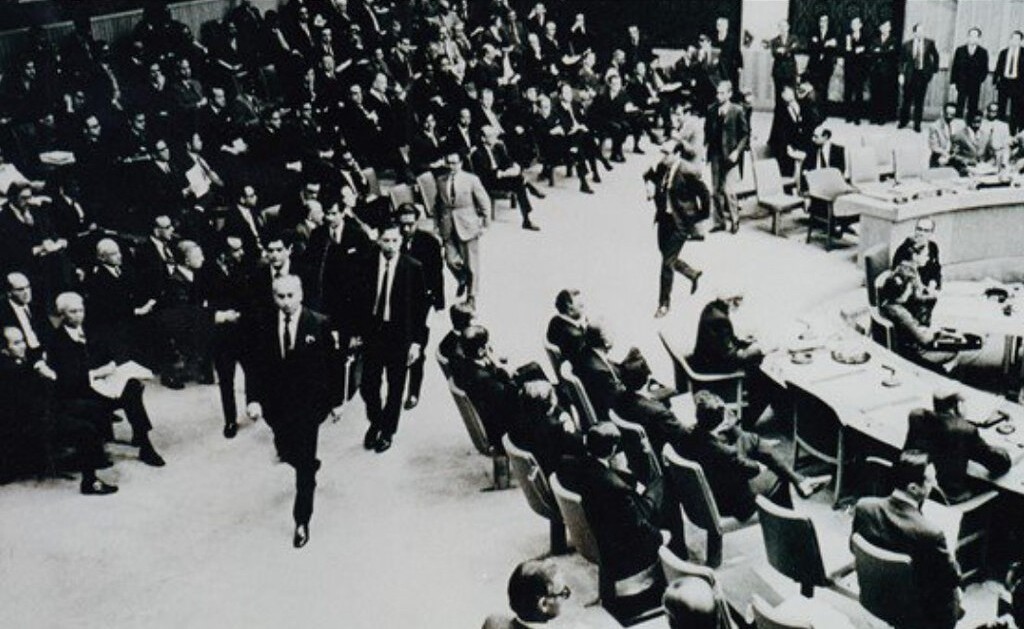
“The surrender ceremony took place on 16 December 1971 ... Before the ceremony, a French reporter came to me and said, ‘How are you feeling, Tiger?’ I replied, ‘Depressed.’ Arora, who was standing nearby, remarked, ‘He had an impossible task under extremely difficult conditions.Any other general in these circumstances could not have done better.’”
[The Betrayal of East Pakistan, 235]
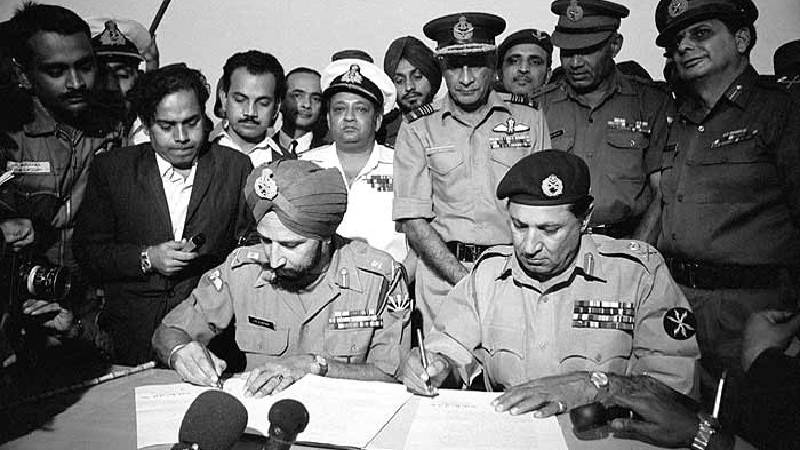
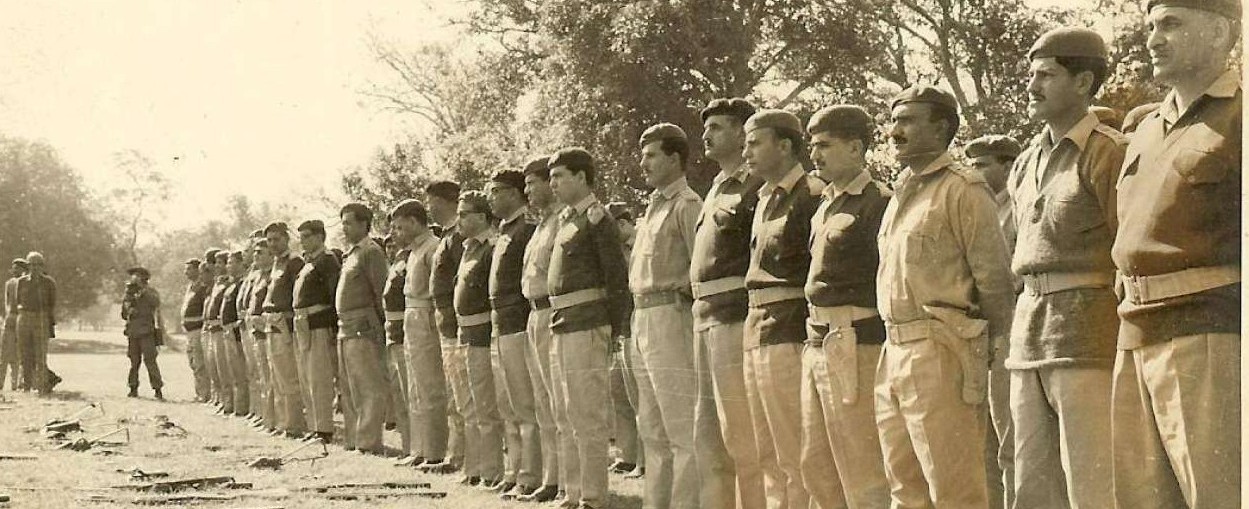
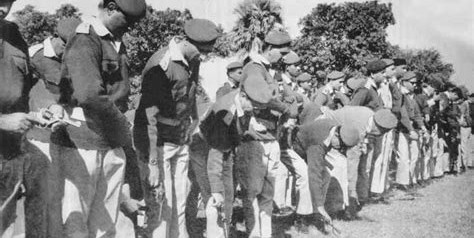
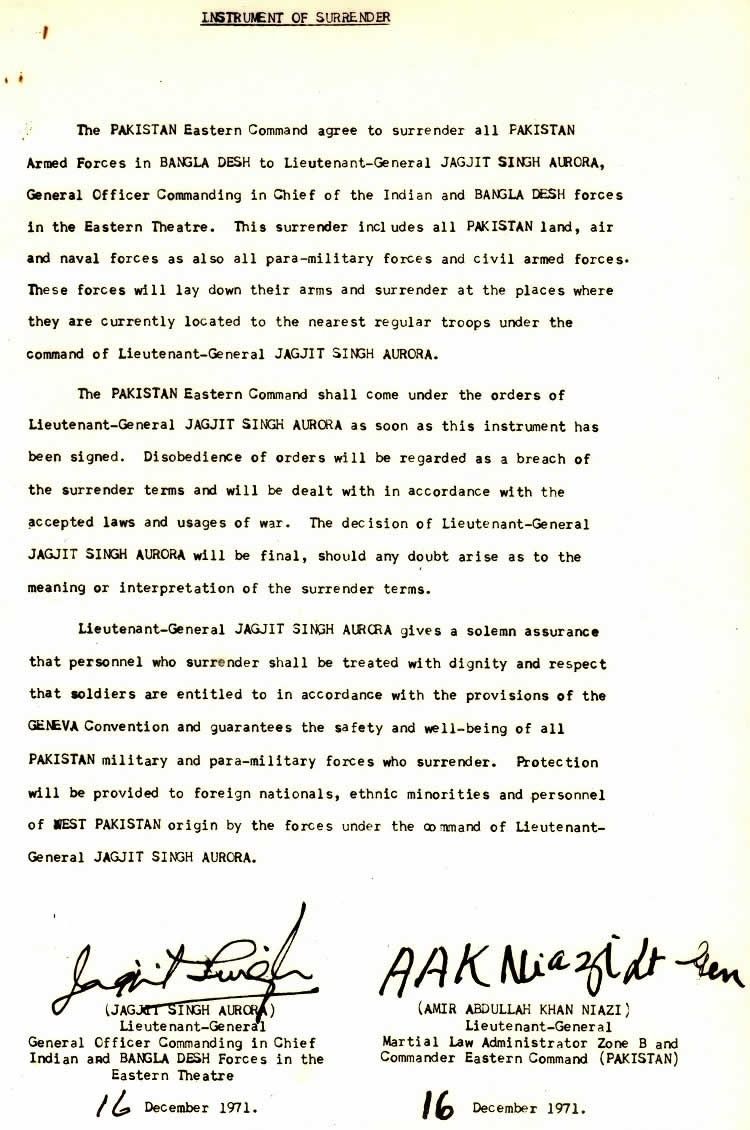
Yahya Khan transfers power to Zulfiqar Ali Bhutto on 20th December 1971
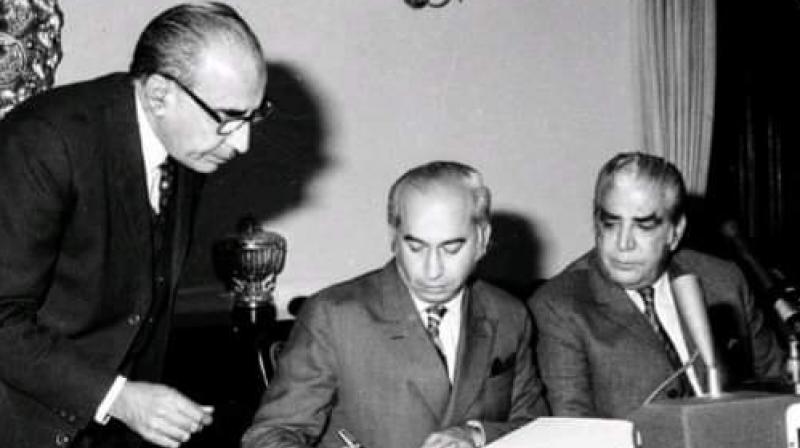
The Prisoners of War (POWs)
“All Pakistani prisoners, including Lt General Niazi, were shipped to forty-nine POW camps in thirteen military stations in the states of Uttar Pradesh, Madhya Pradesh and Bihar, where they would spend the next twenty-eight months.”
[Operation X, 245]
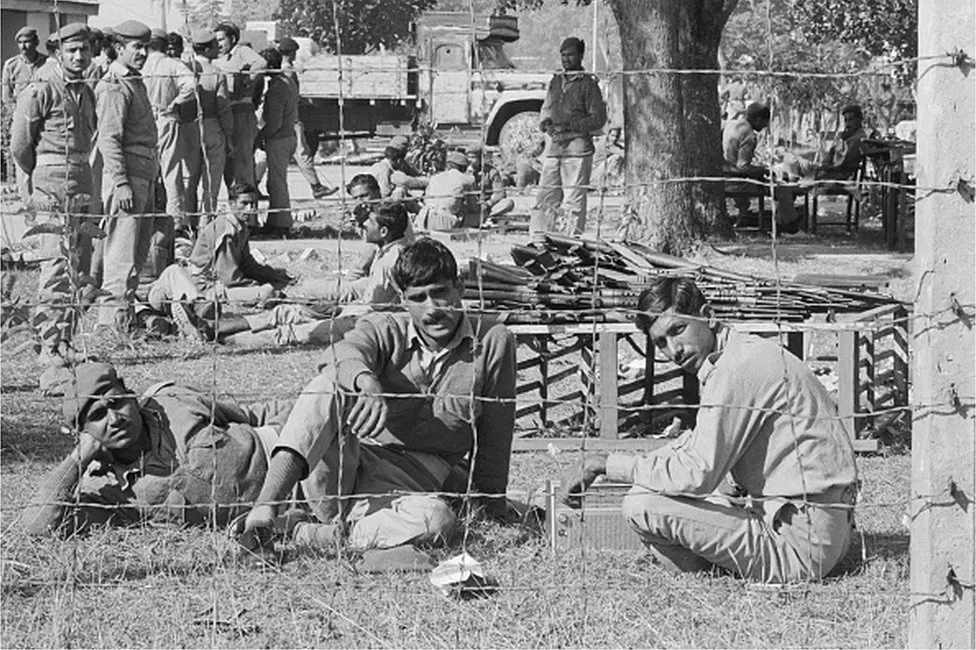
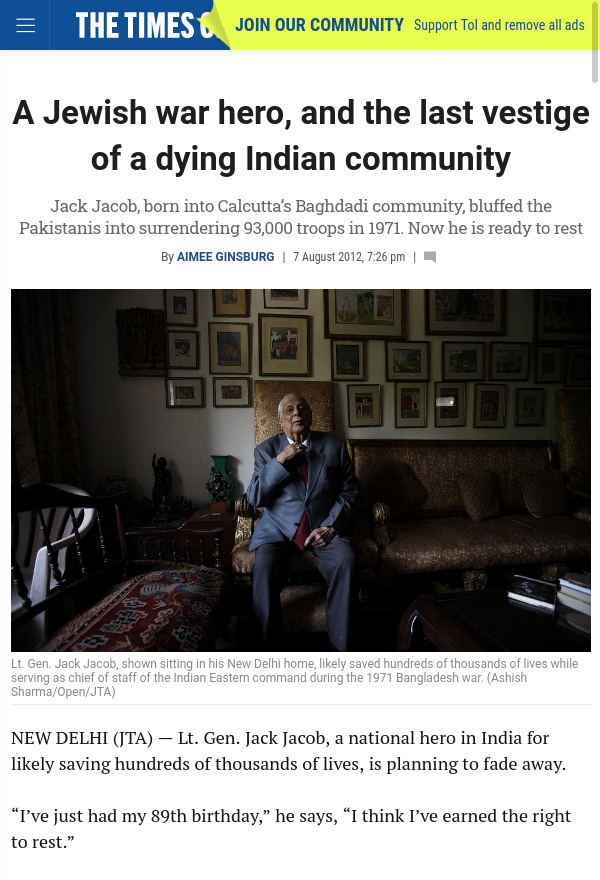
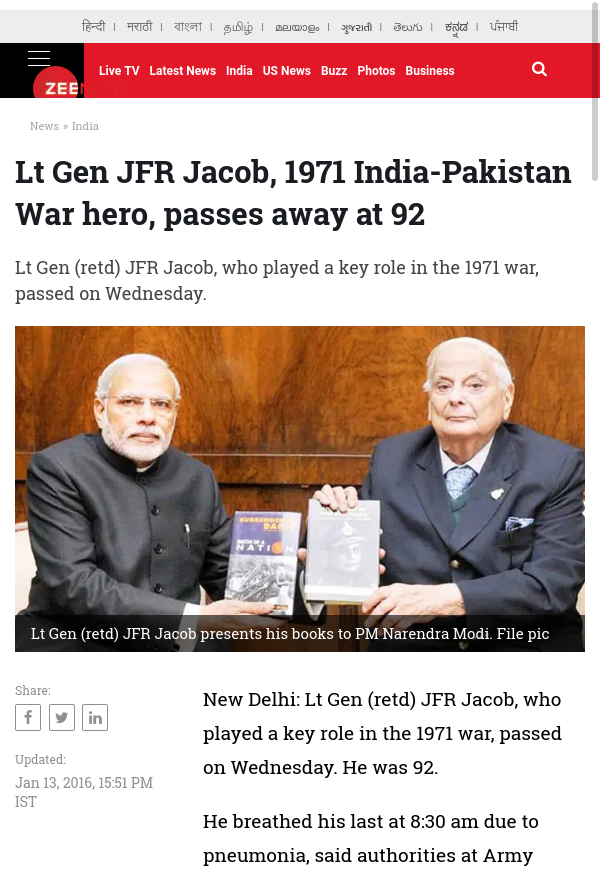
“The Indian master strategist, Subramanyam, called it ‘once chance in a millennium’ to undo Pakistan.”
[A Stranger in my Own Country, 79]
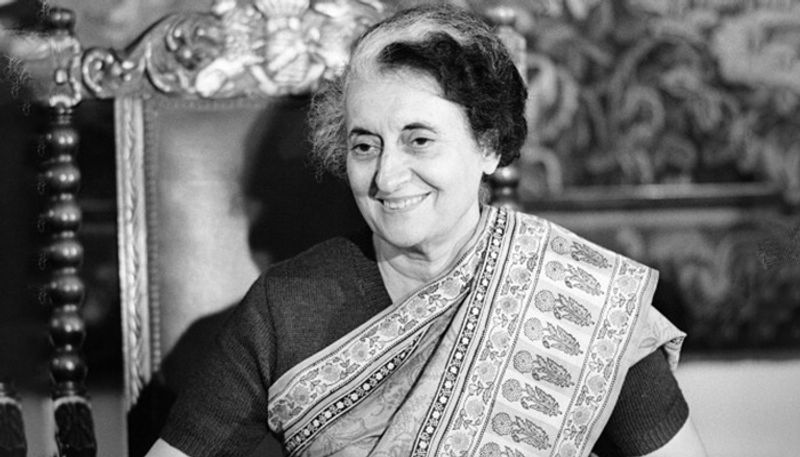
“We have avenged our thousand years of slavery & defeat.”
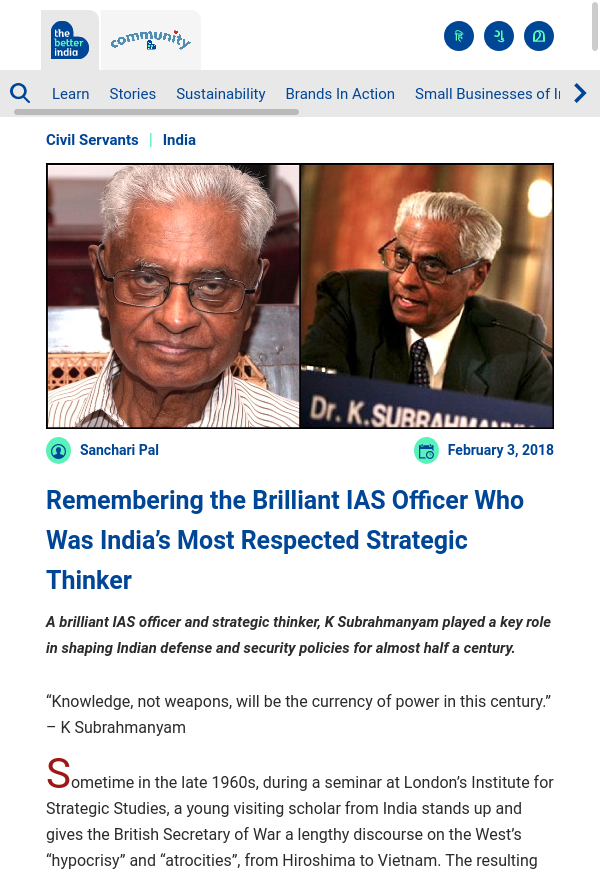
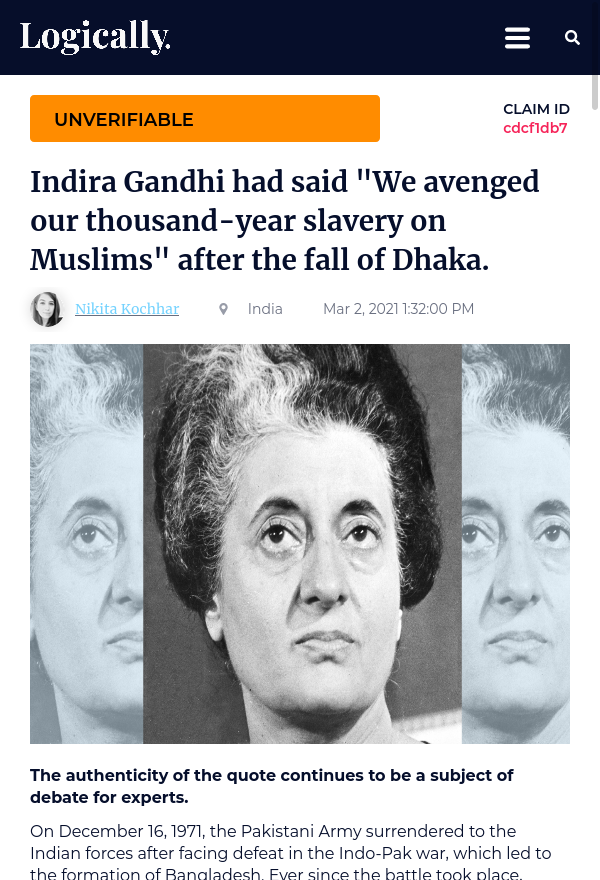
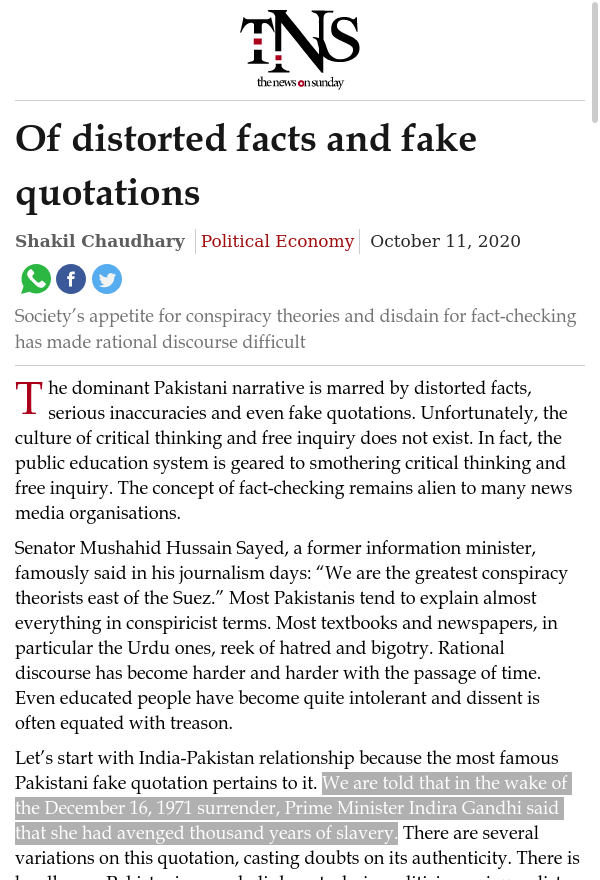
The End of Those Who Are Guilty
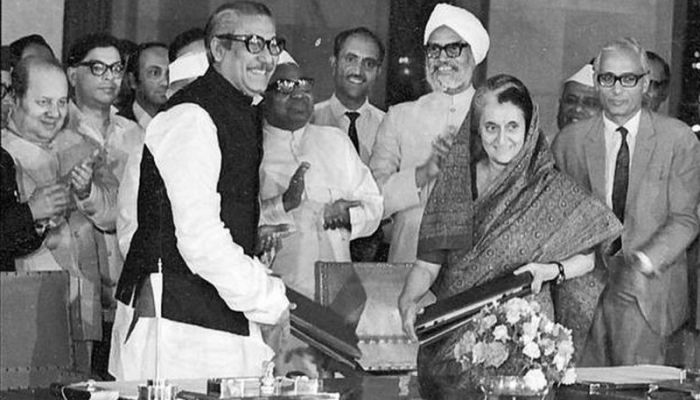
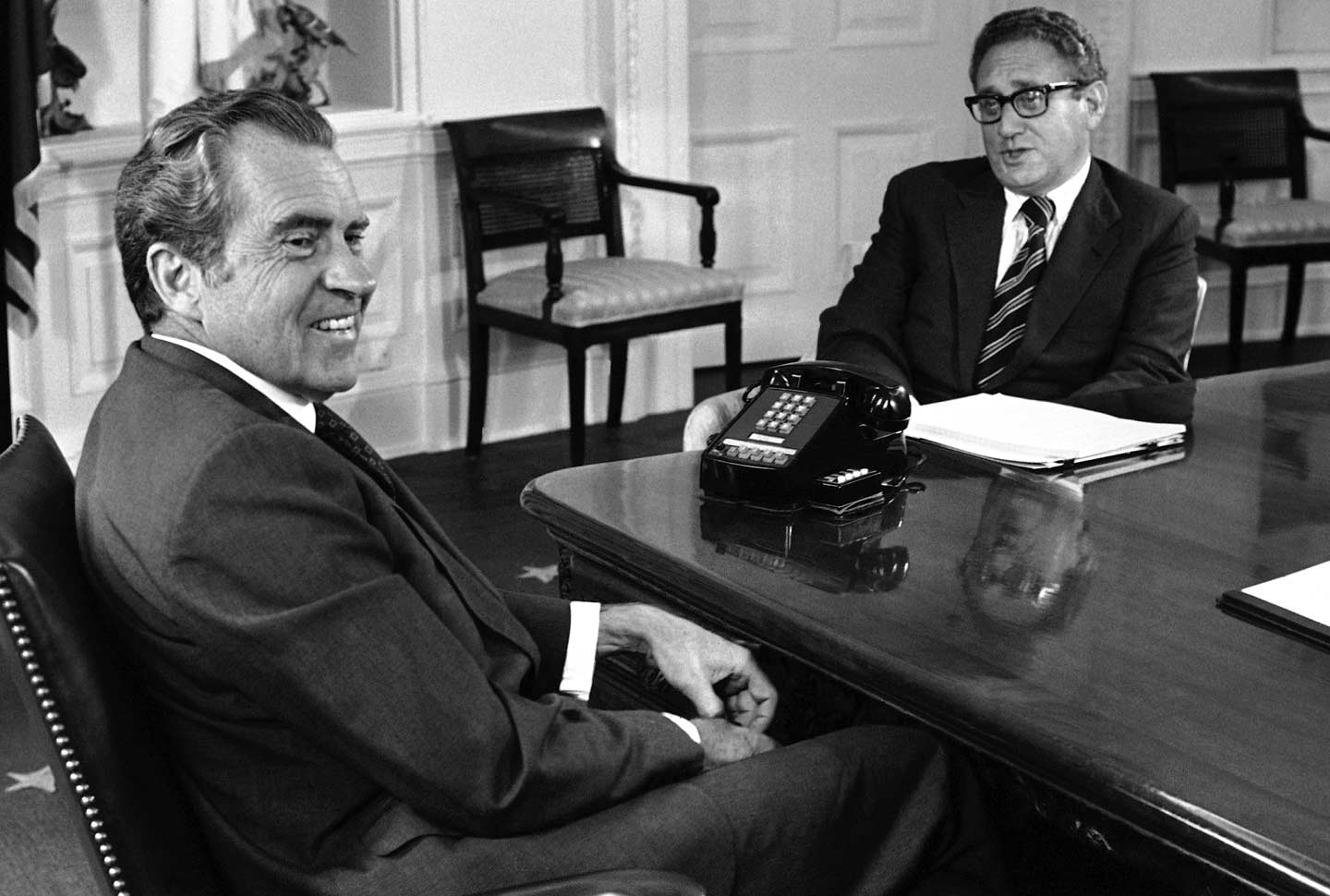
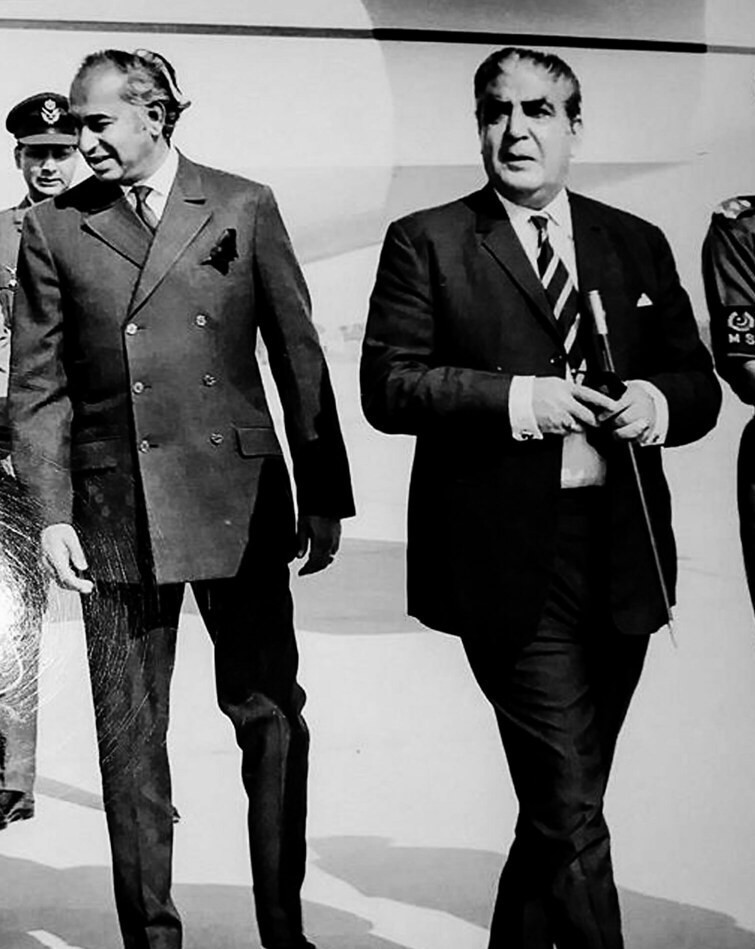
General Musharraf during his 2002 Visit
“Gen Musharraf visited a war memorial at Savar, near capital Dhaka and left a handwritten note in the visitors’ booth. ‘Your brothers and sisters in Pakistan share the pain of the events in 1971,’ Musharraf wrote. ‘The excesses committed during the unfortunate period are regretted. Let us bury the past in the spirit of magnanimity. Let not the light of the future be dimmed’. Later he repeated his regrets at an official banquet in Dhaka.”
[https://tribune.com.pk/story/463616/1971-war-crimes-bangladesh-seeks-apology-from-pakistan]
Email: MAhmadZ@pm.me
YouTube: @MAhmadZ
Twitter: @MAhmadZ
Telegram: @MAhmadZ
Soundcloud: @MAhmadZ
LinkedIn: @MAhmadZ
For the full video & other beneficial topics, visit:

Website: www.aagahi.com
Twitter: @MAhmadZ
Telegram: @MAhmadZ
Soundcloud: @MAhmadZ
LinkedIn: @MAhmadZ
Email: MAhmadZ@pm.me